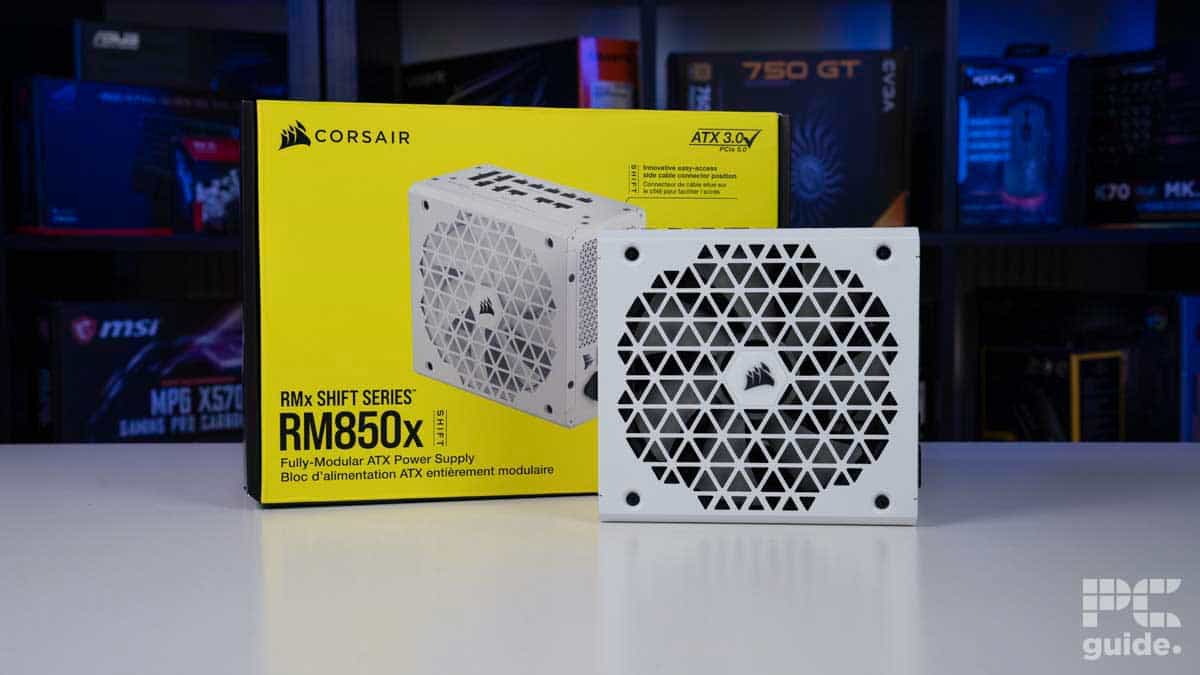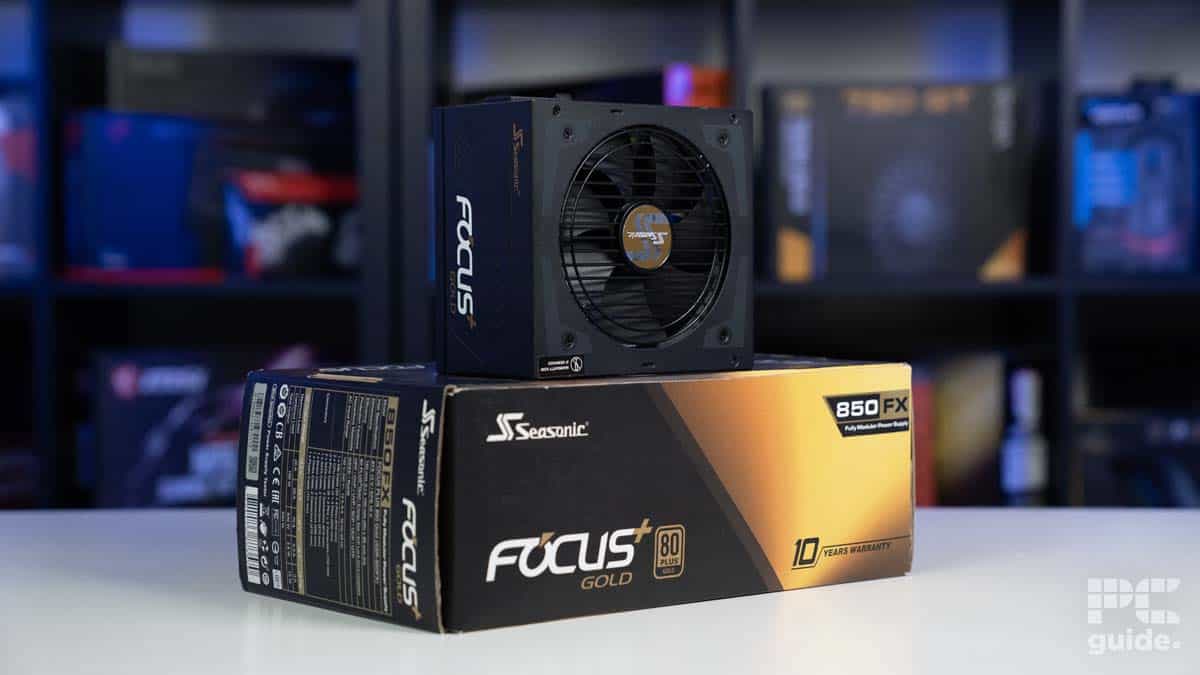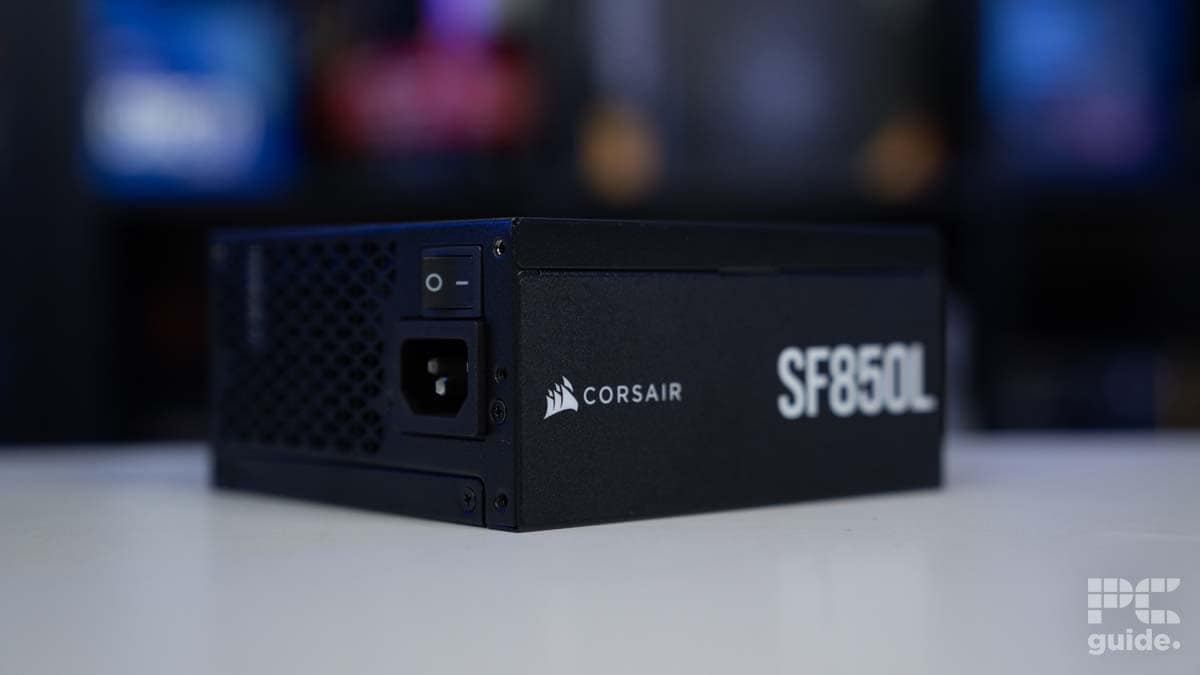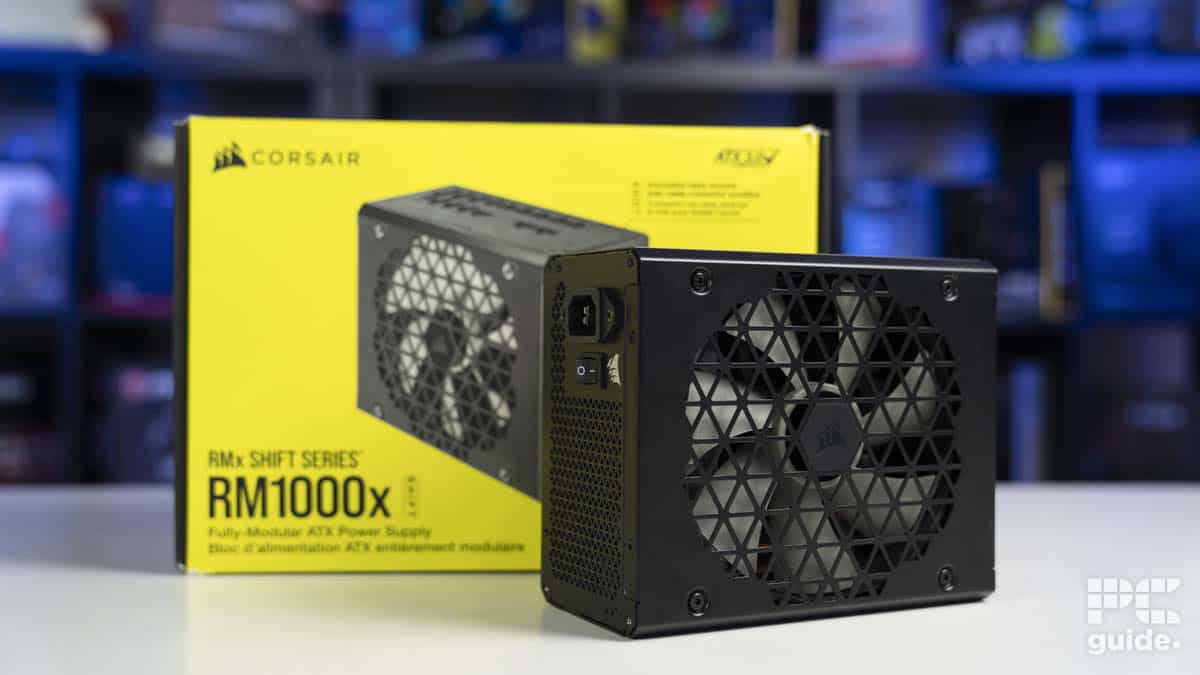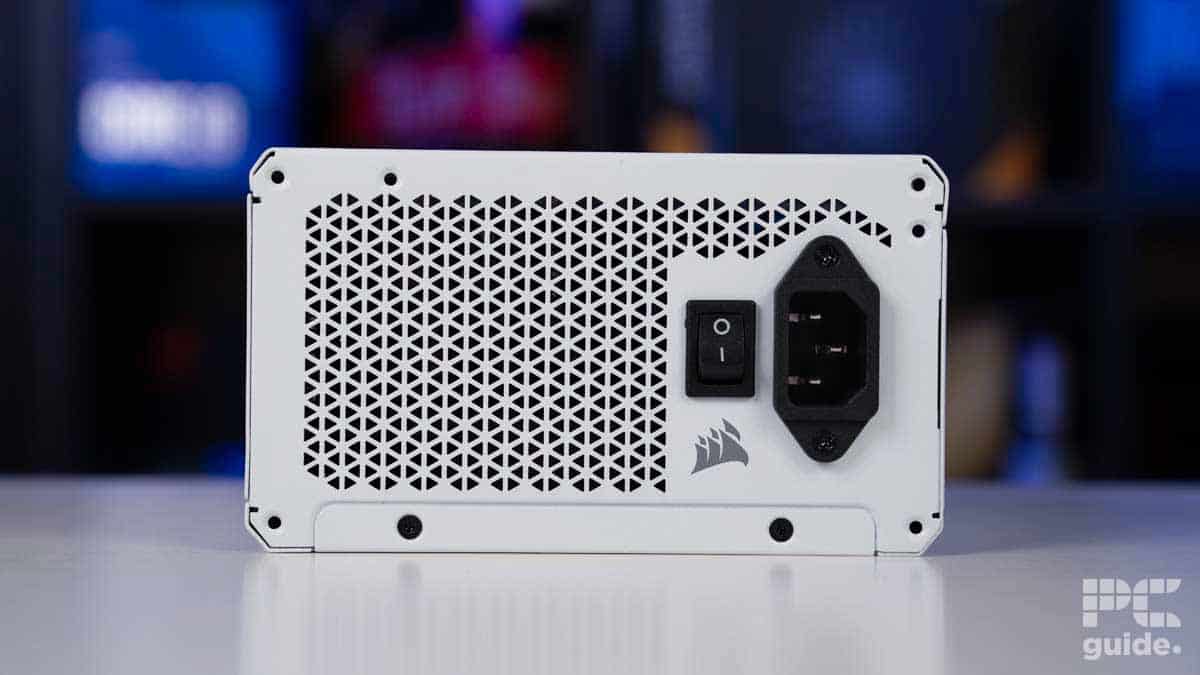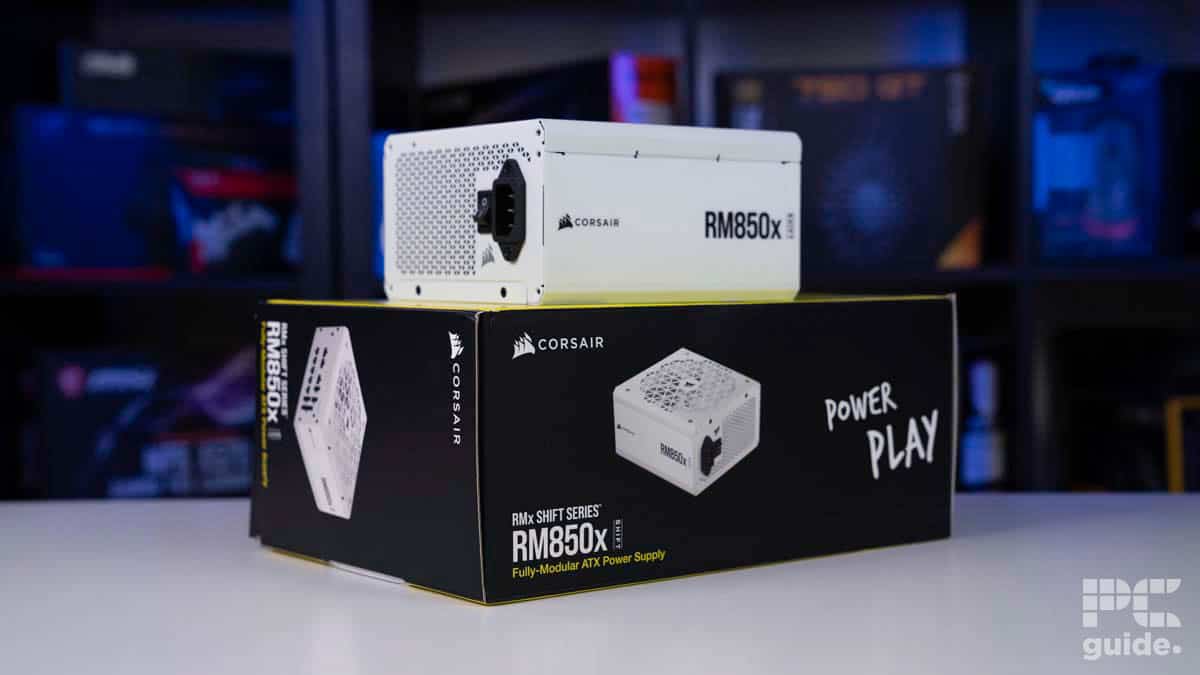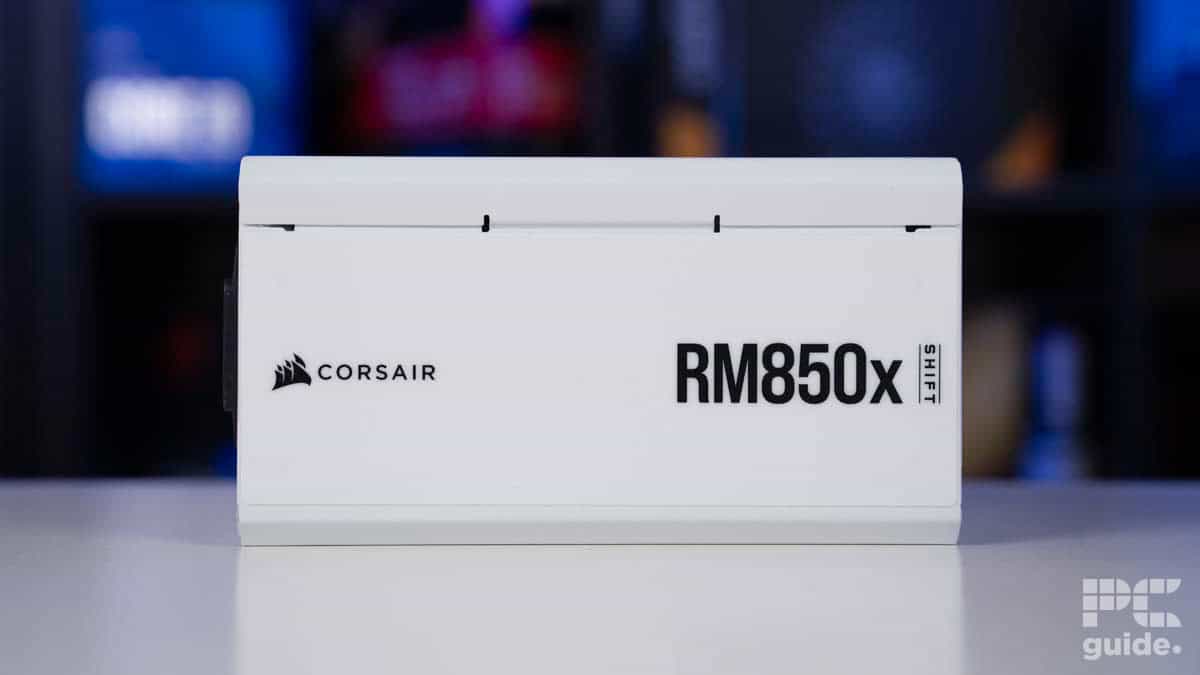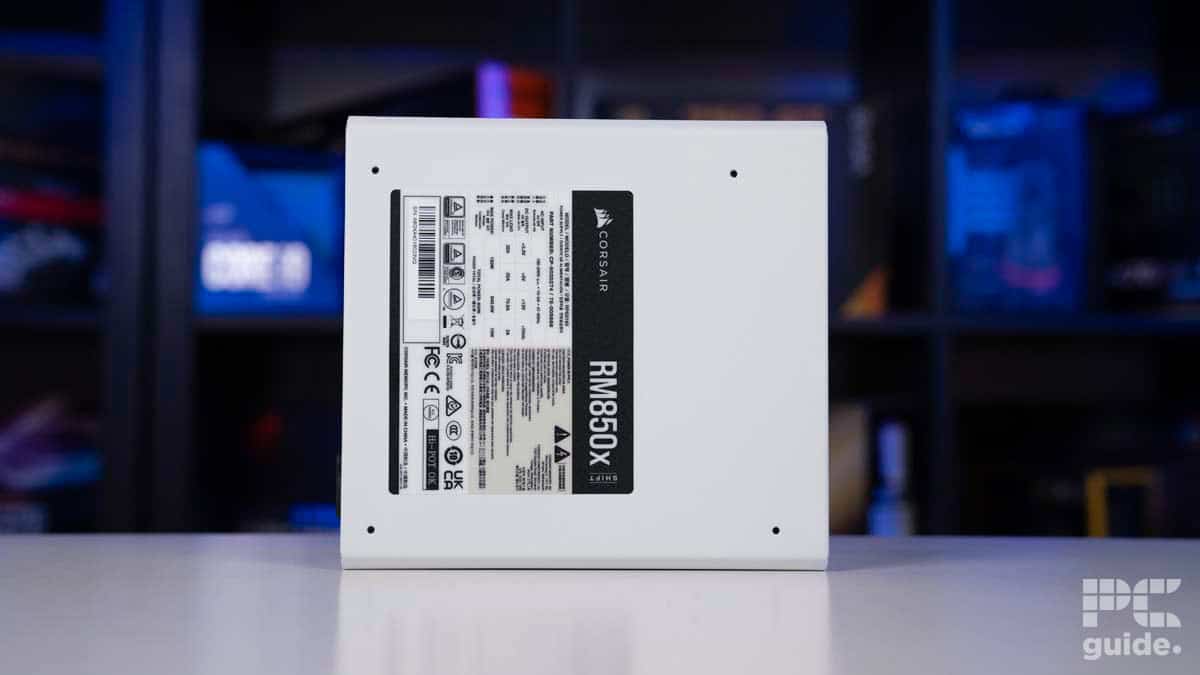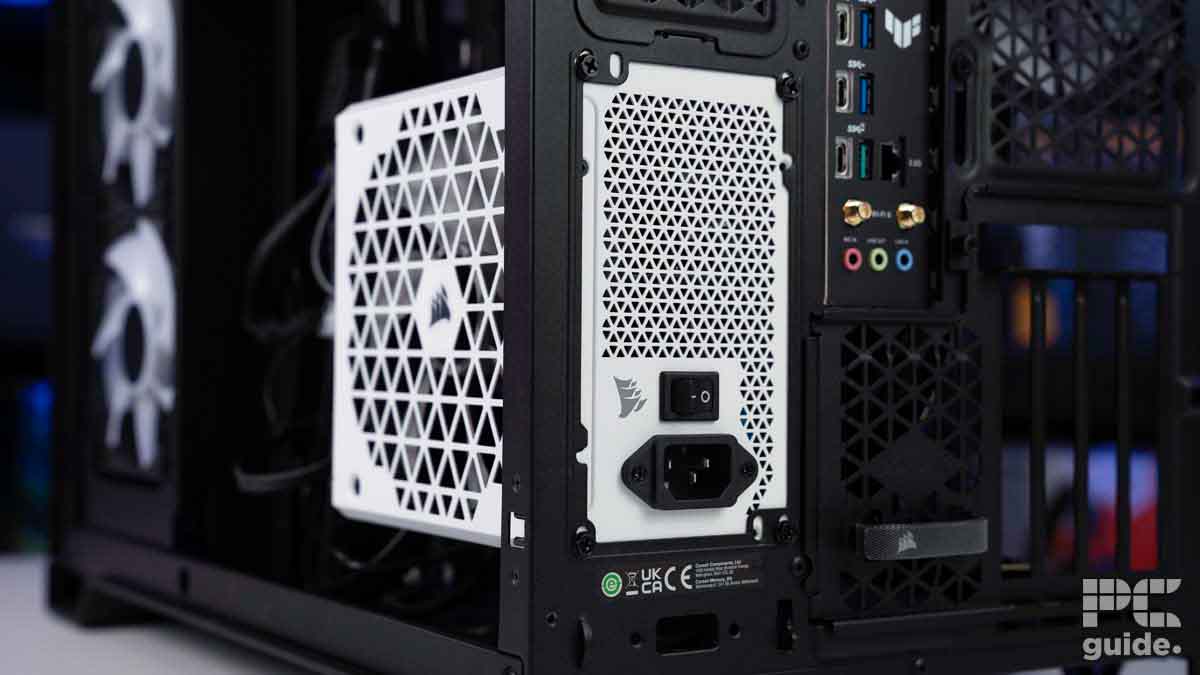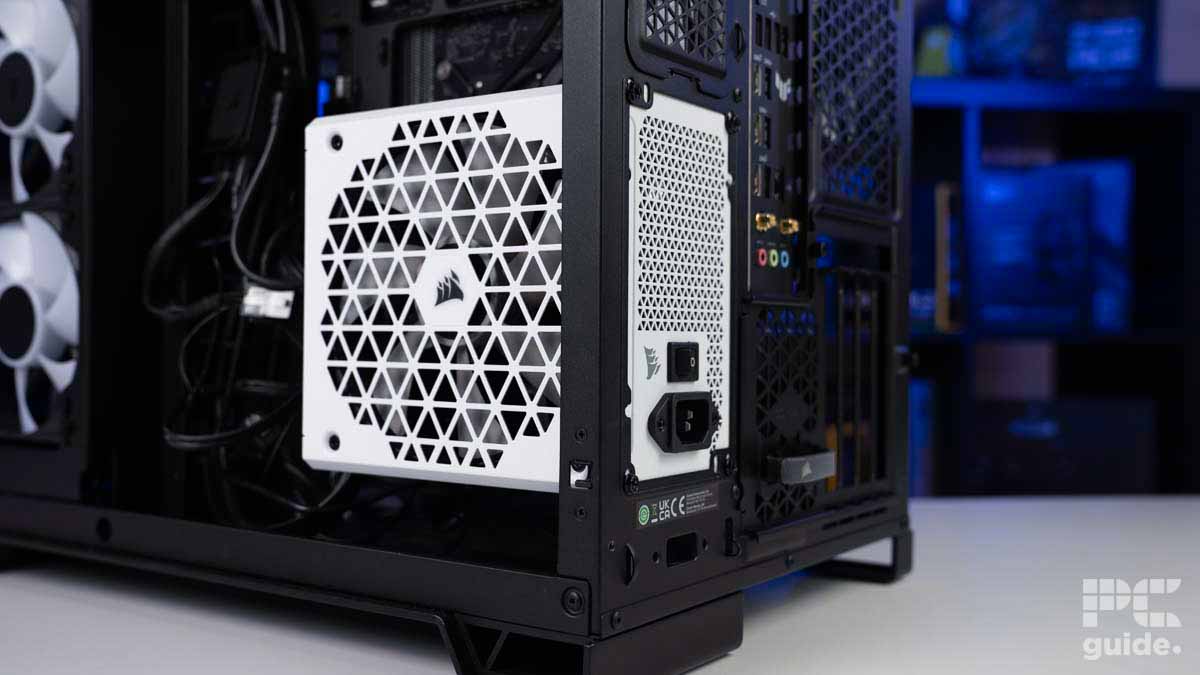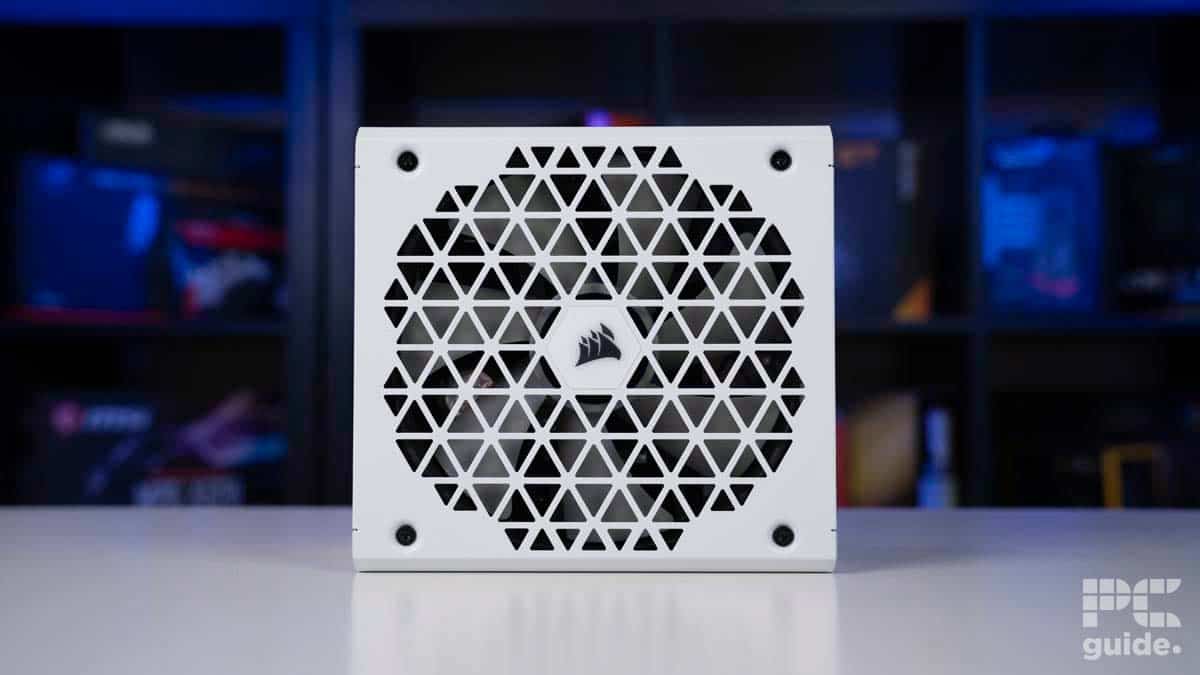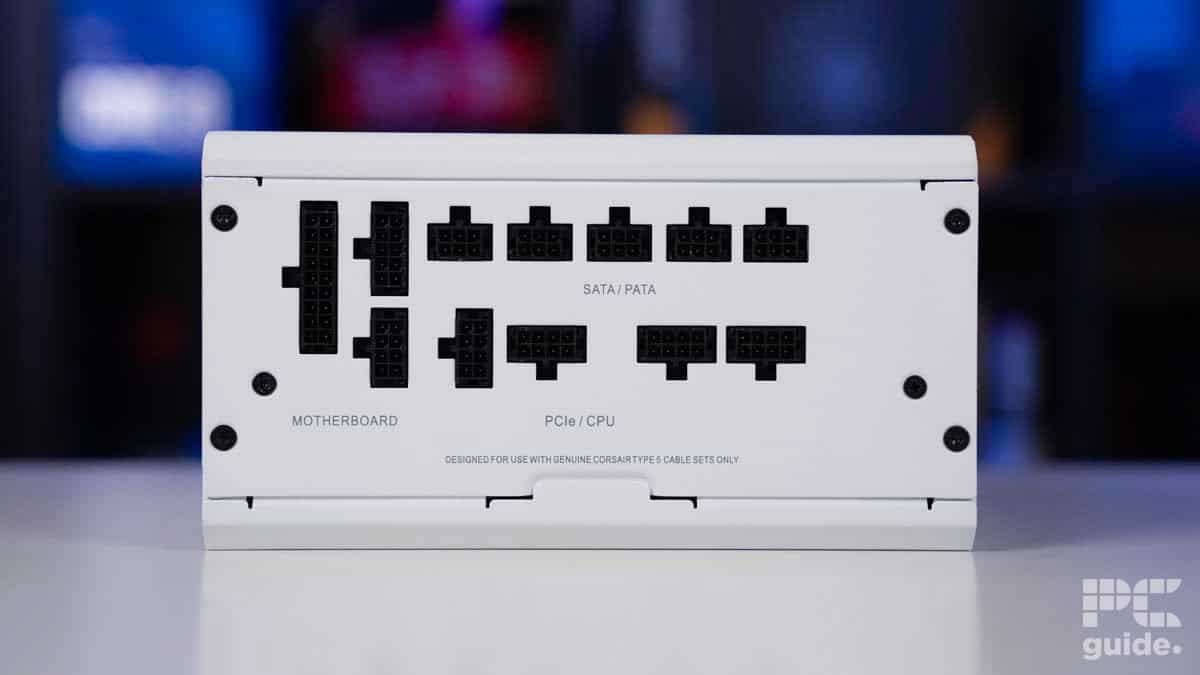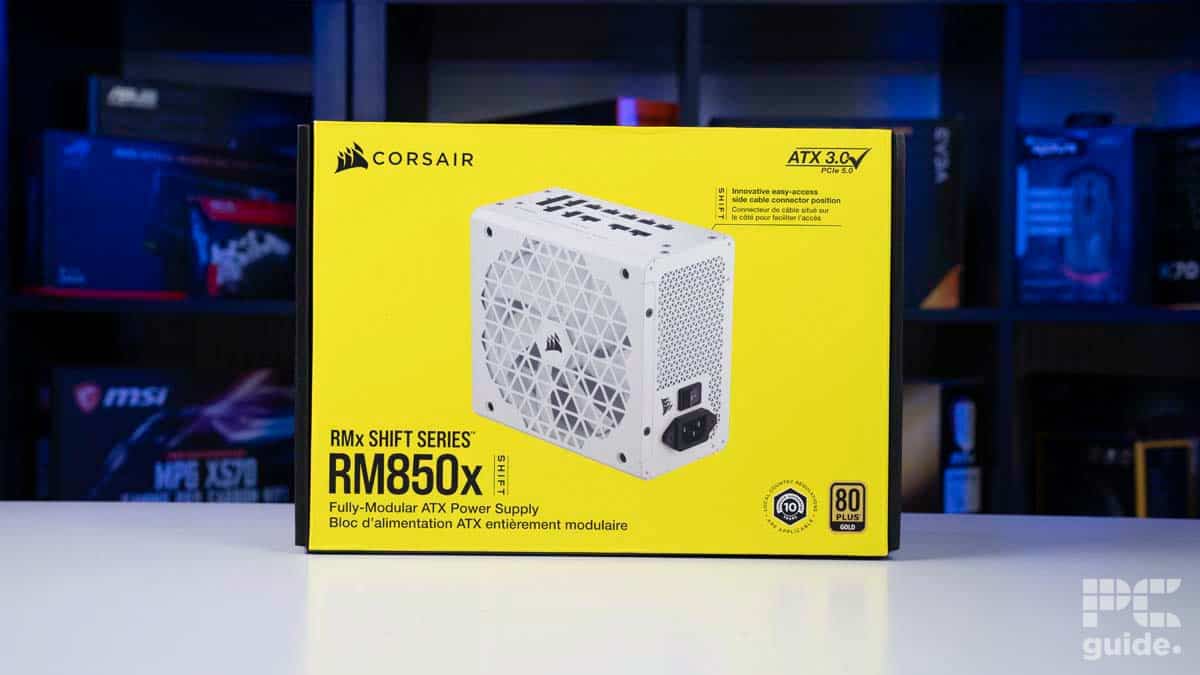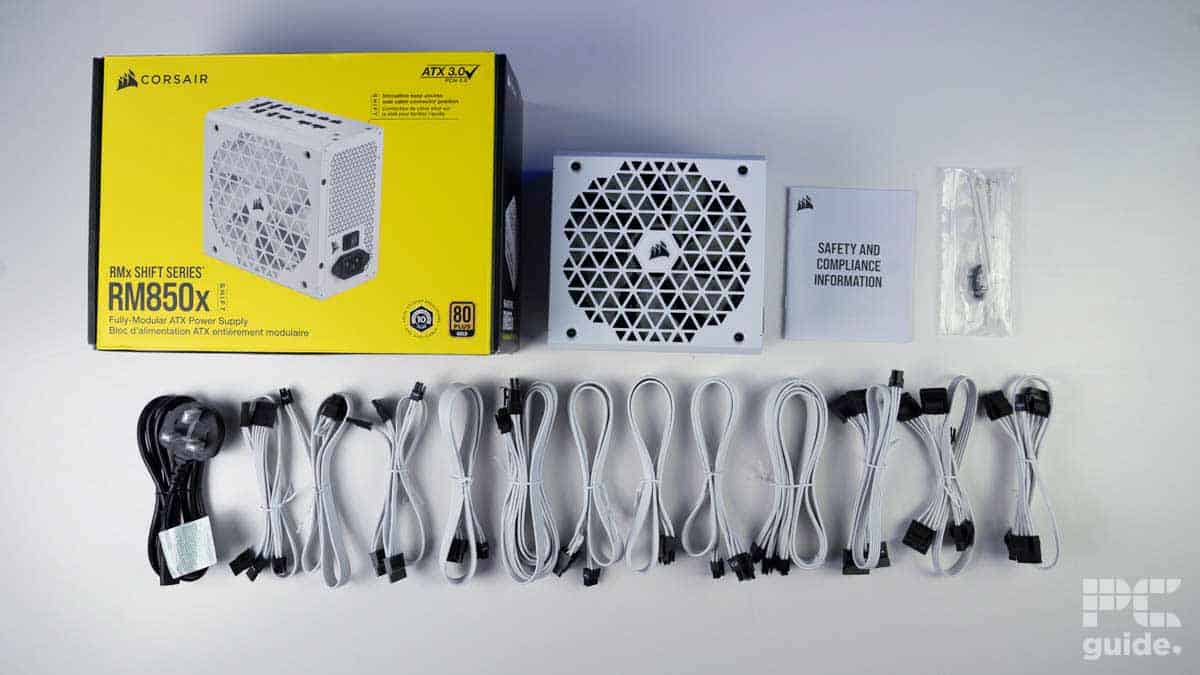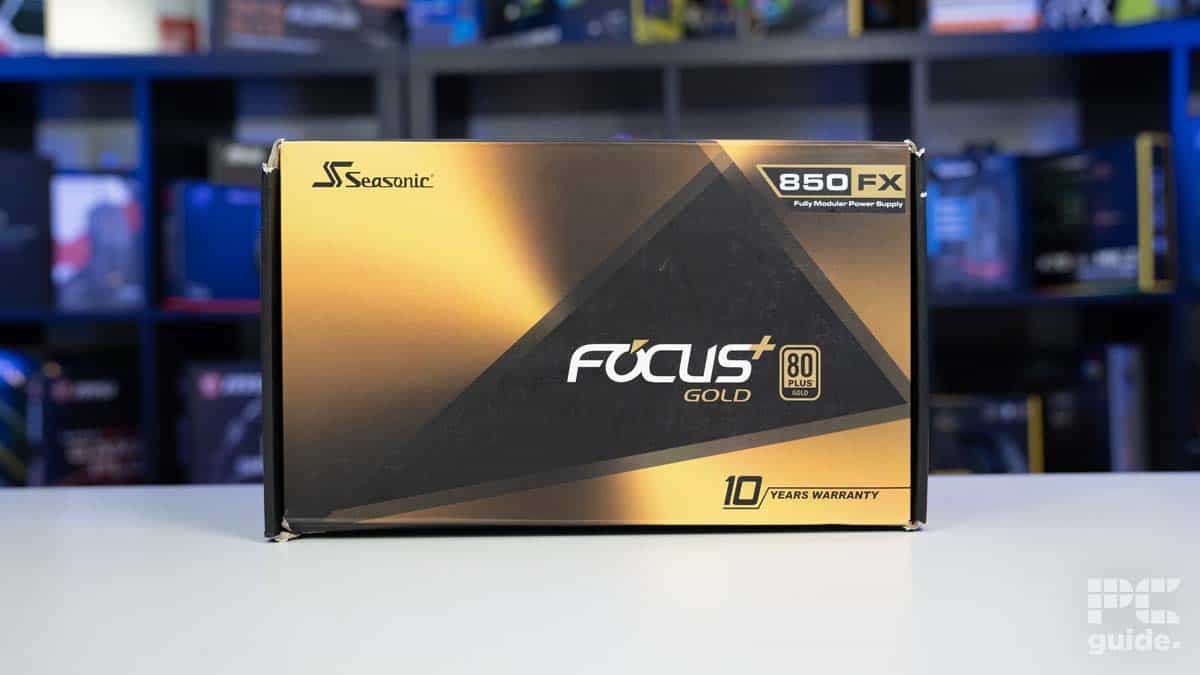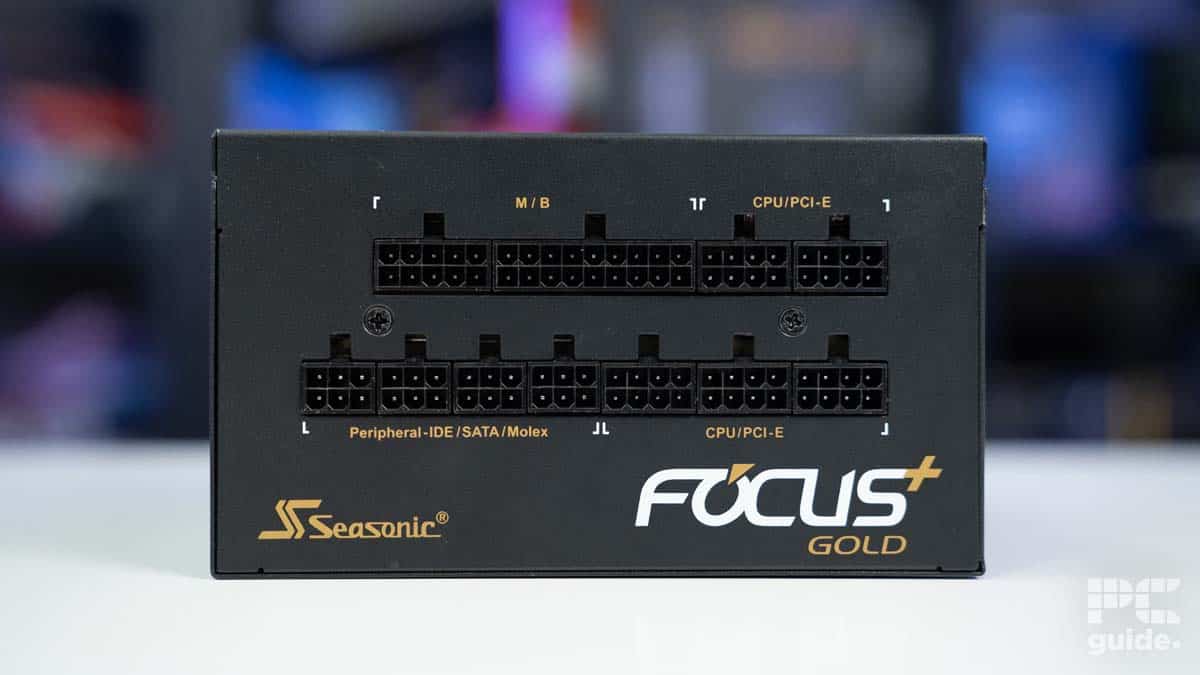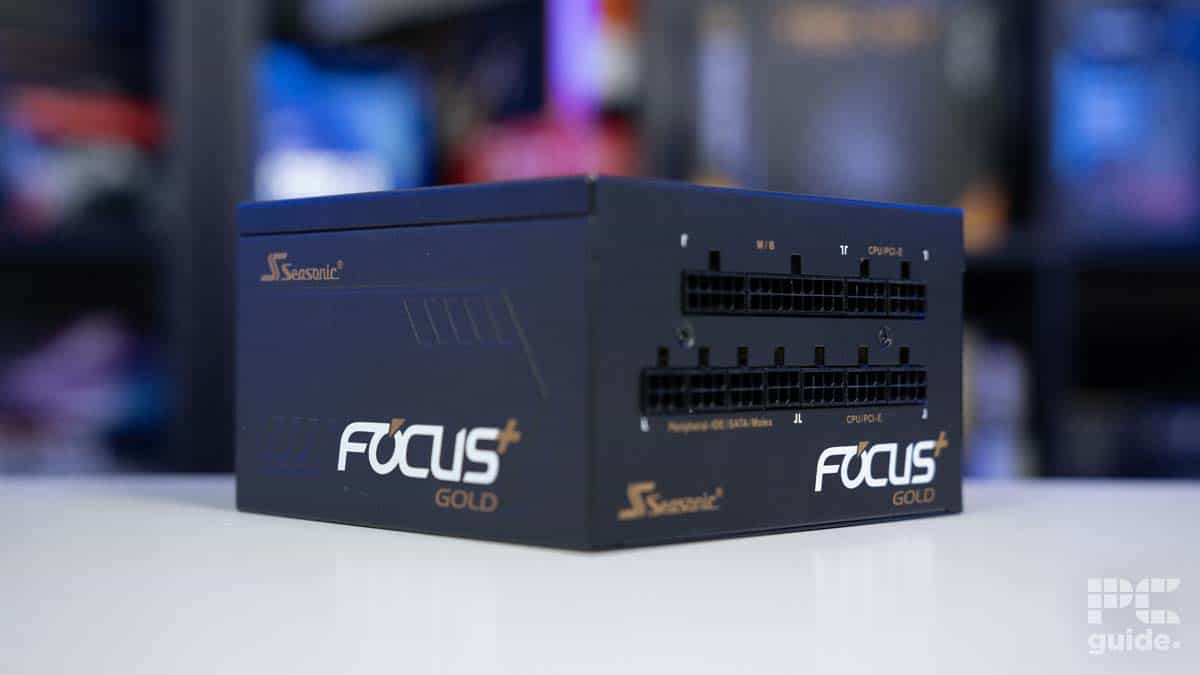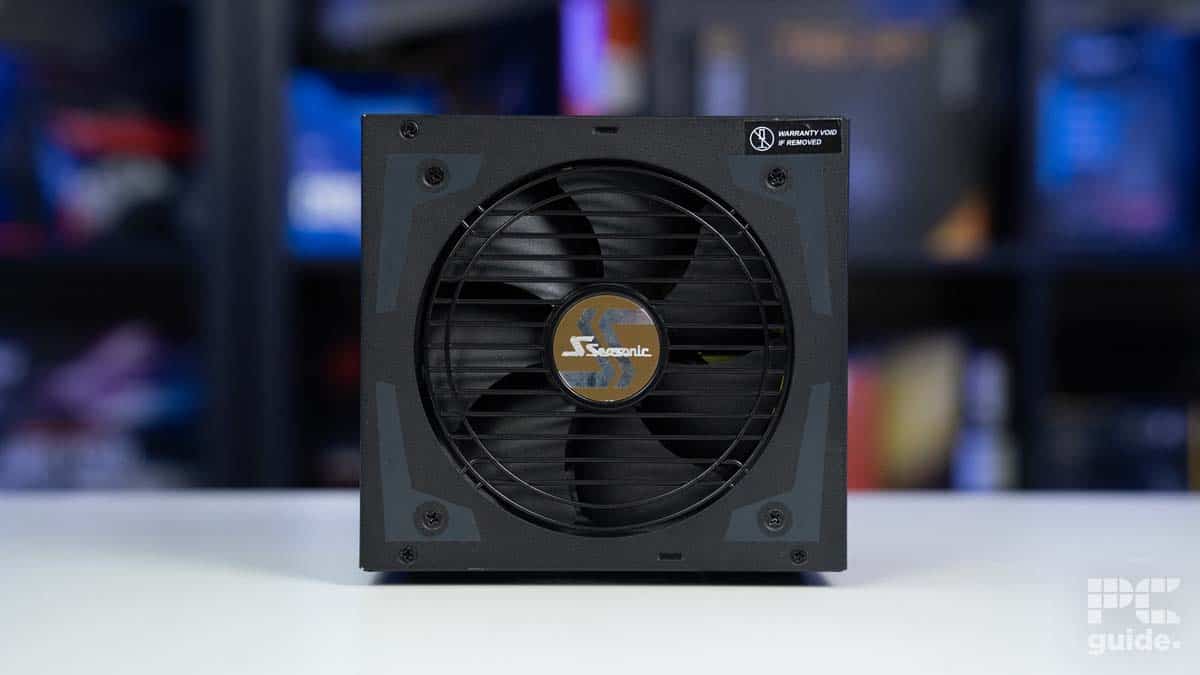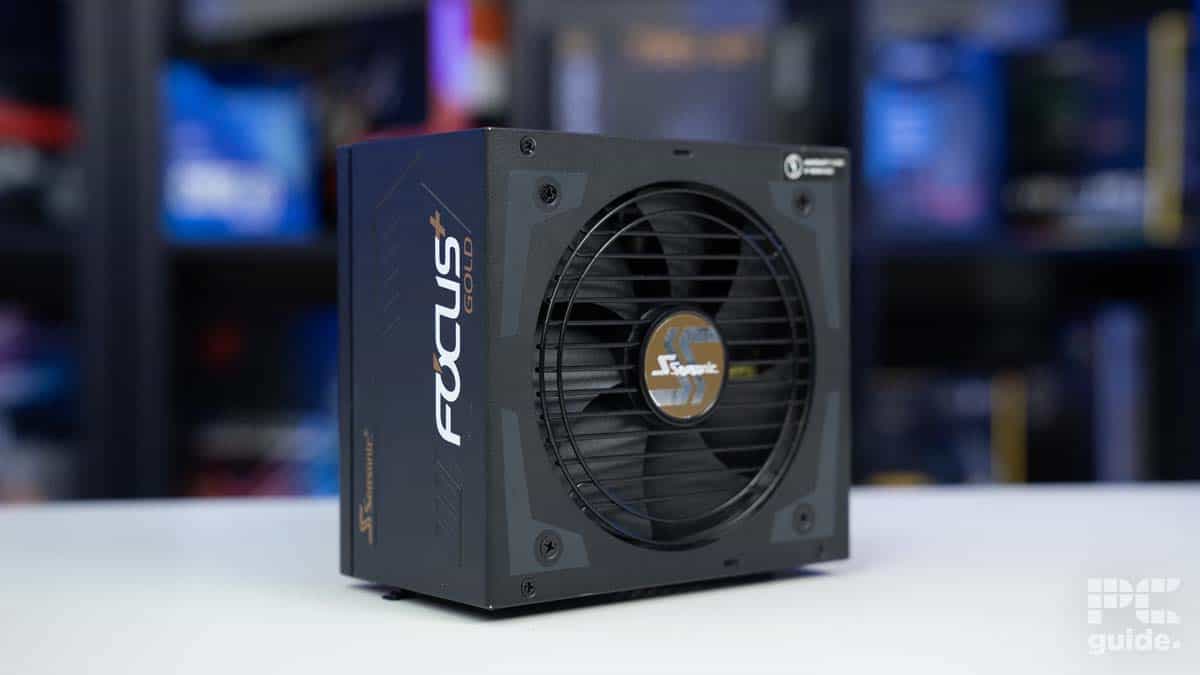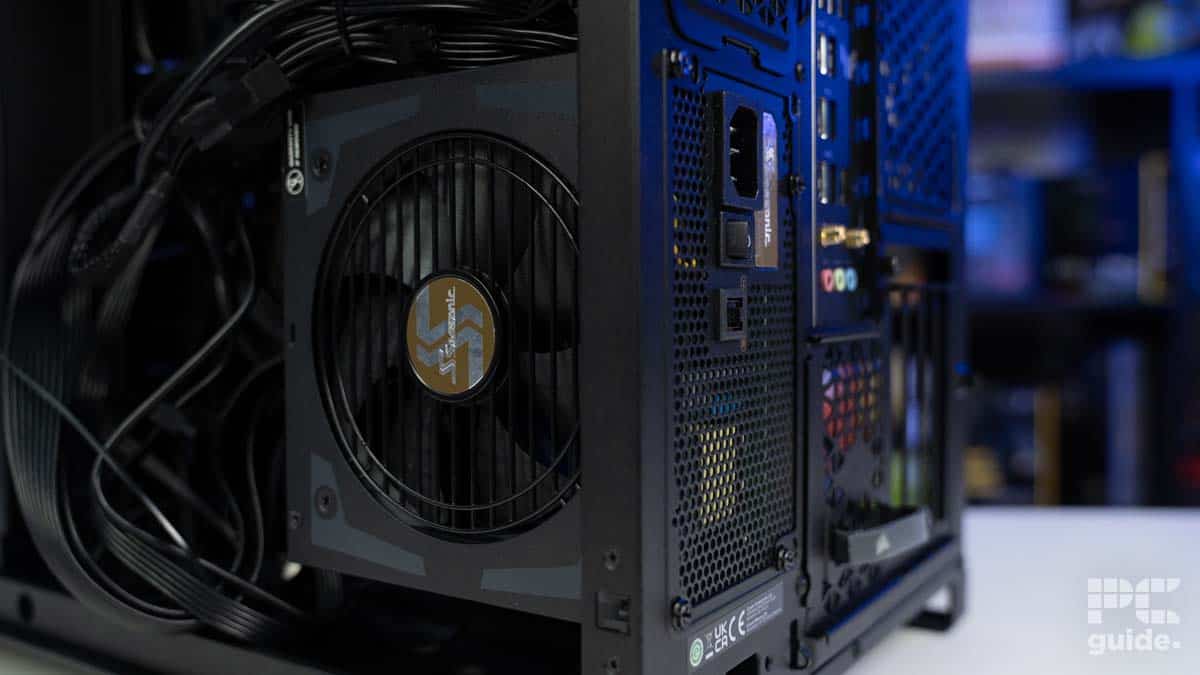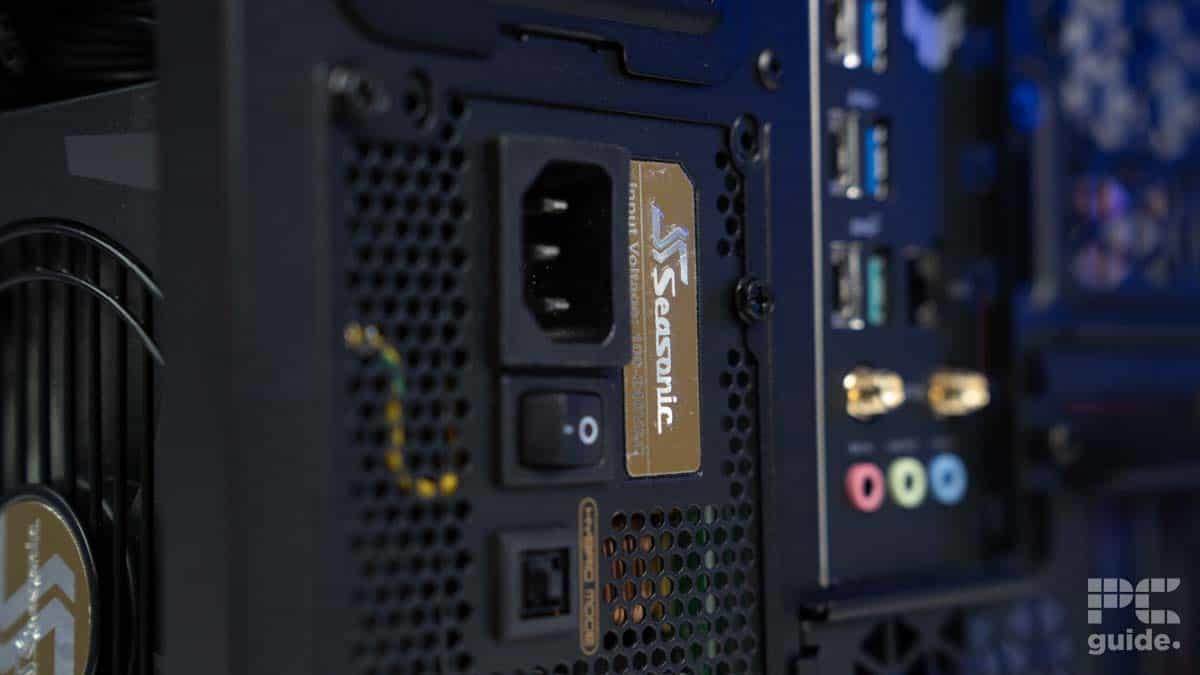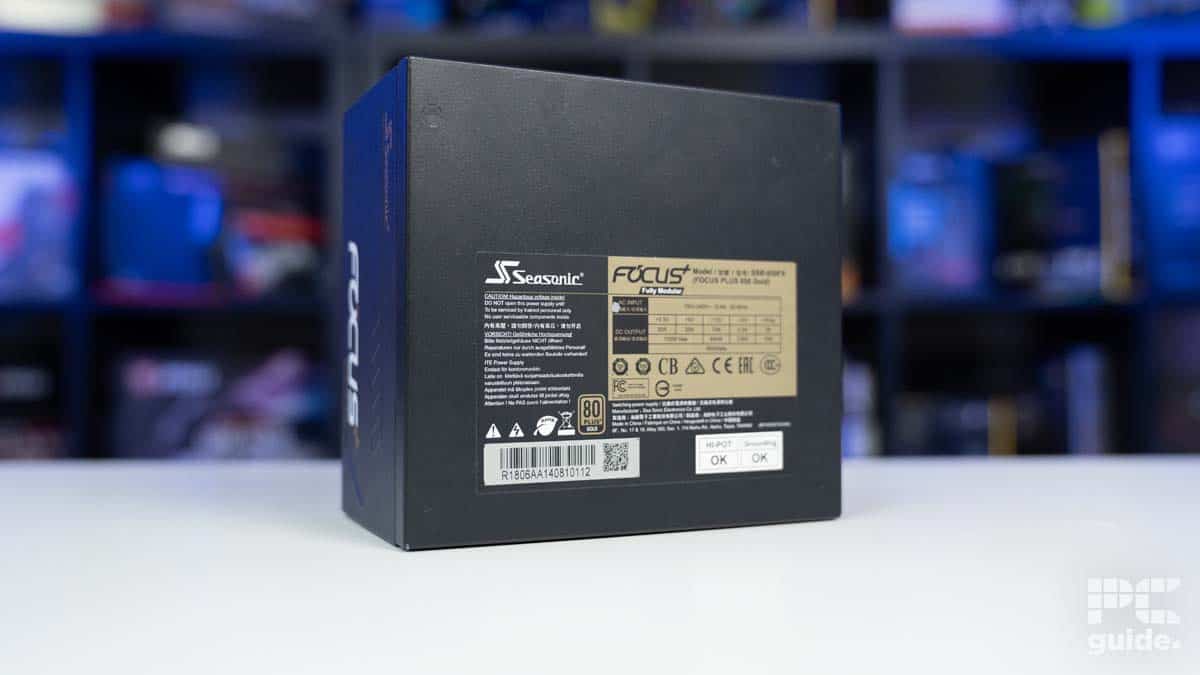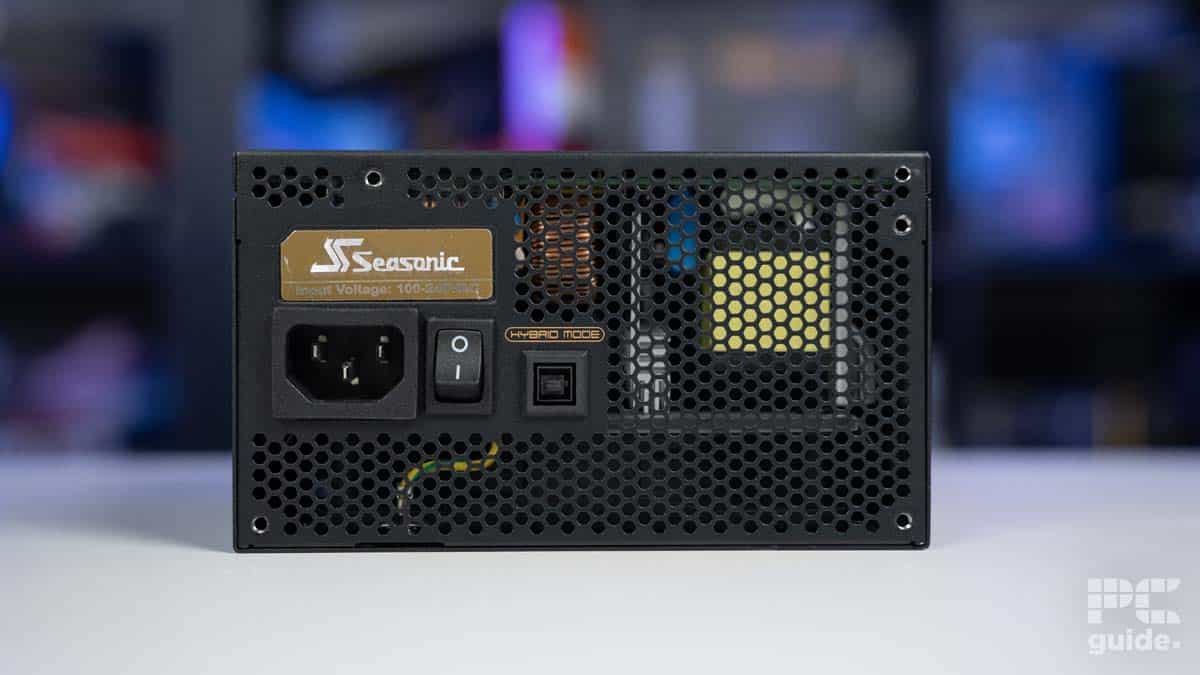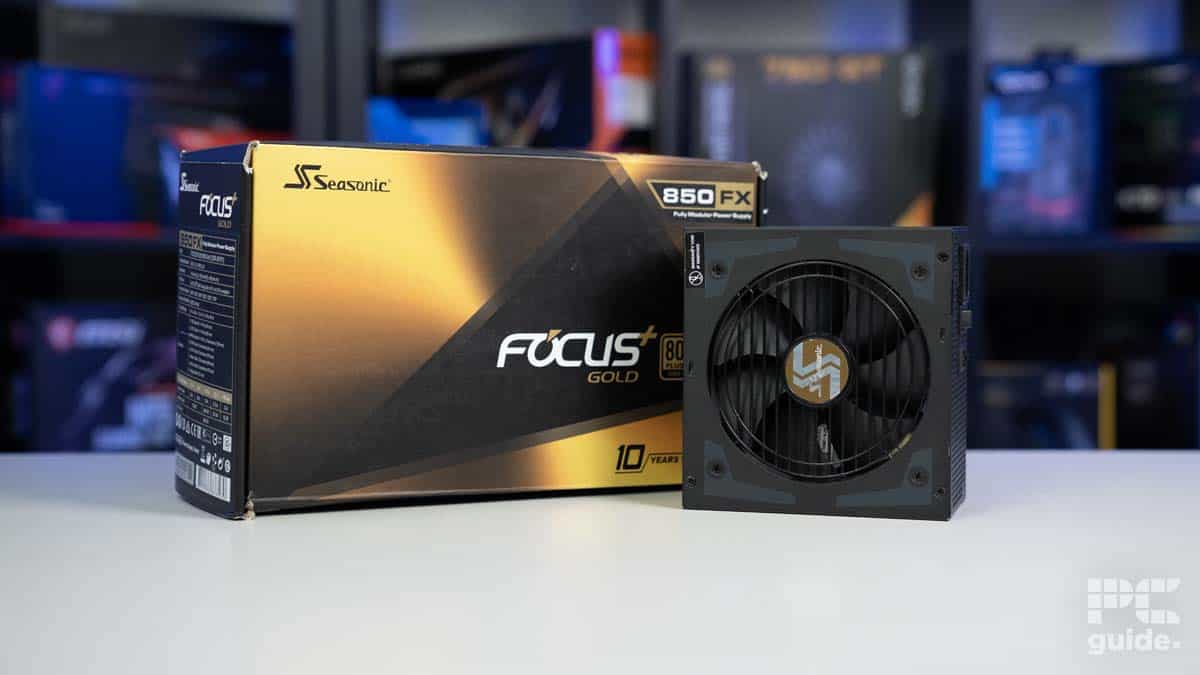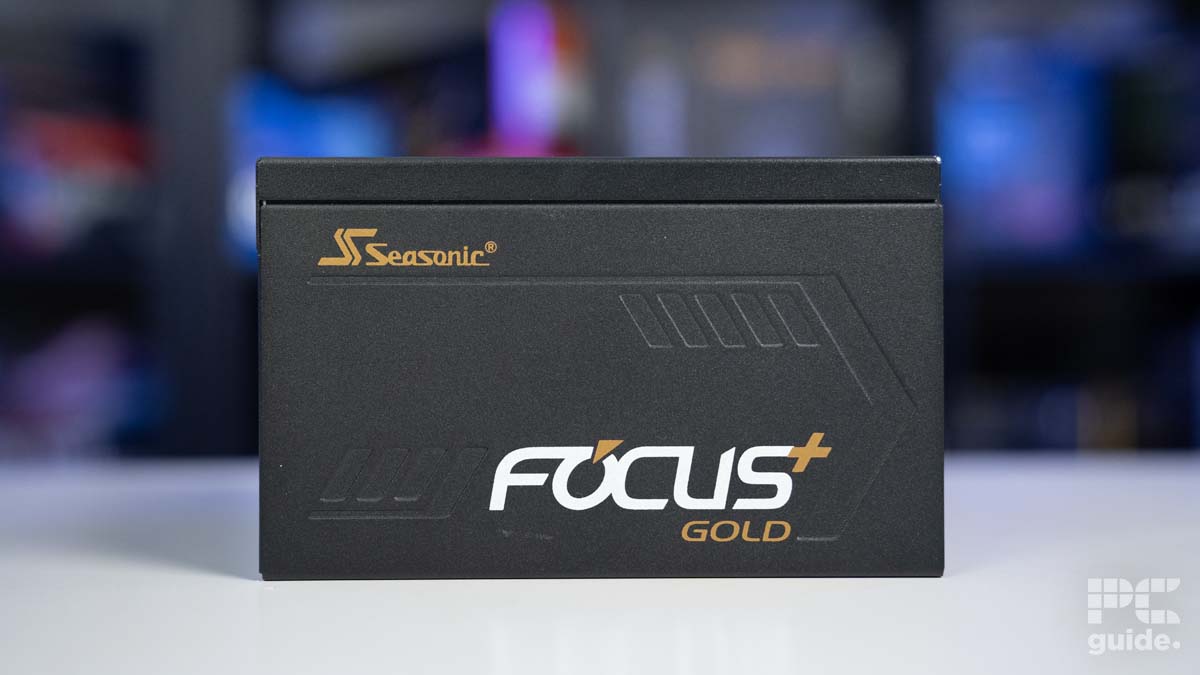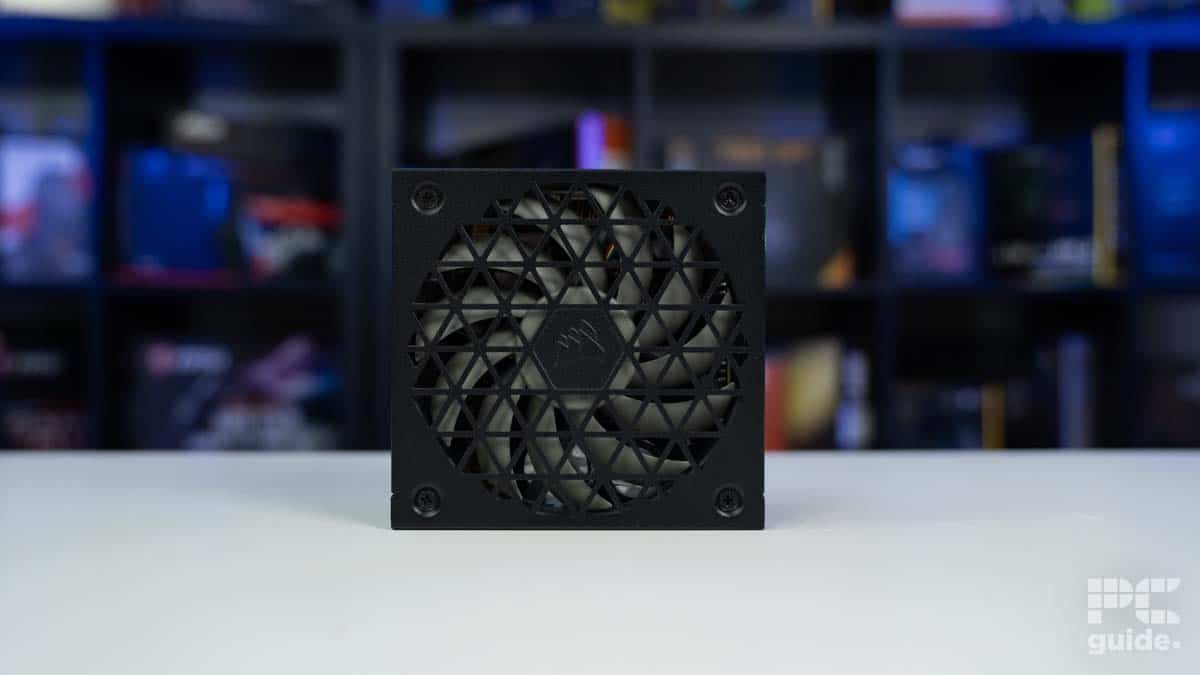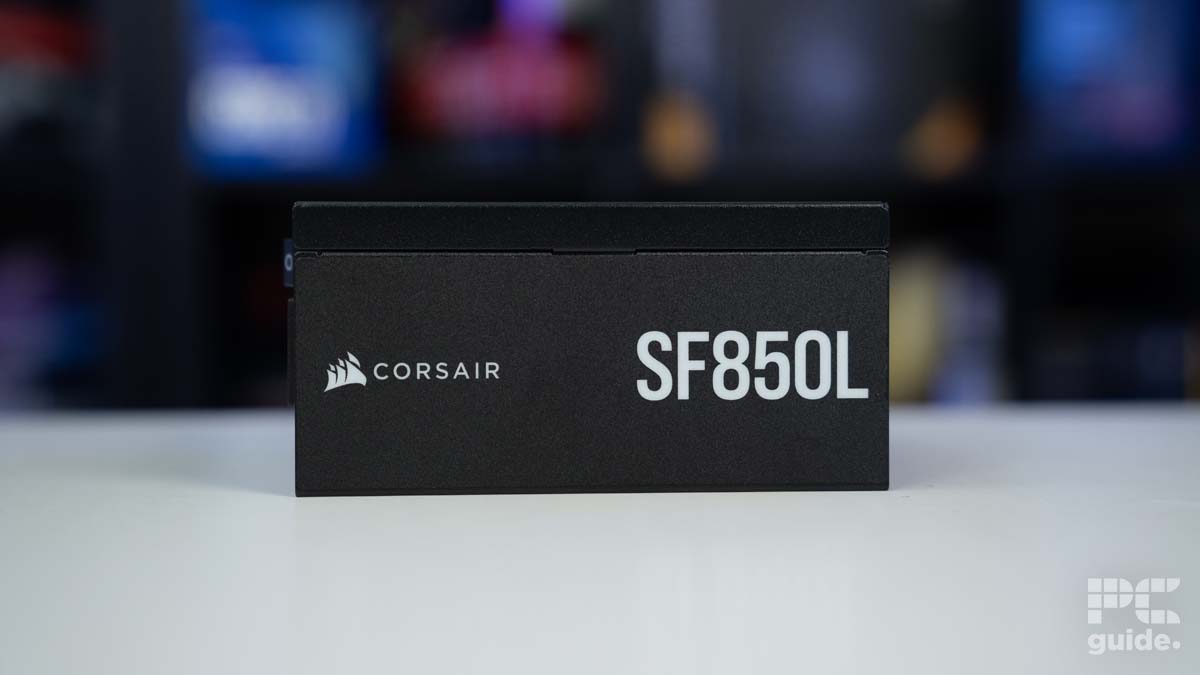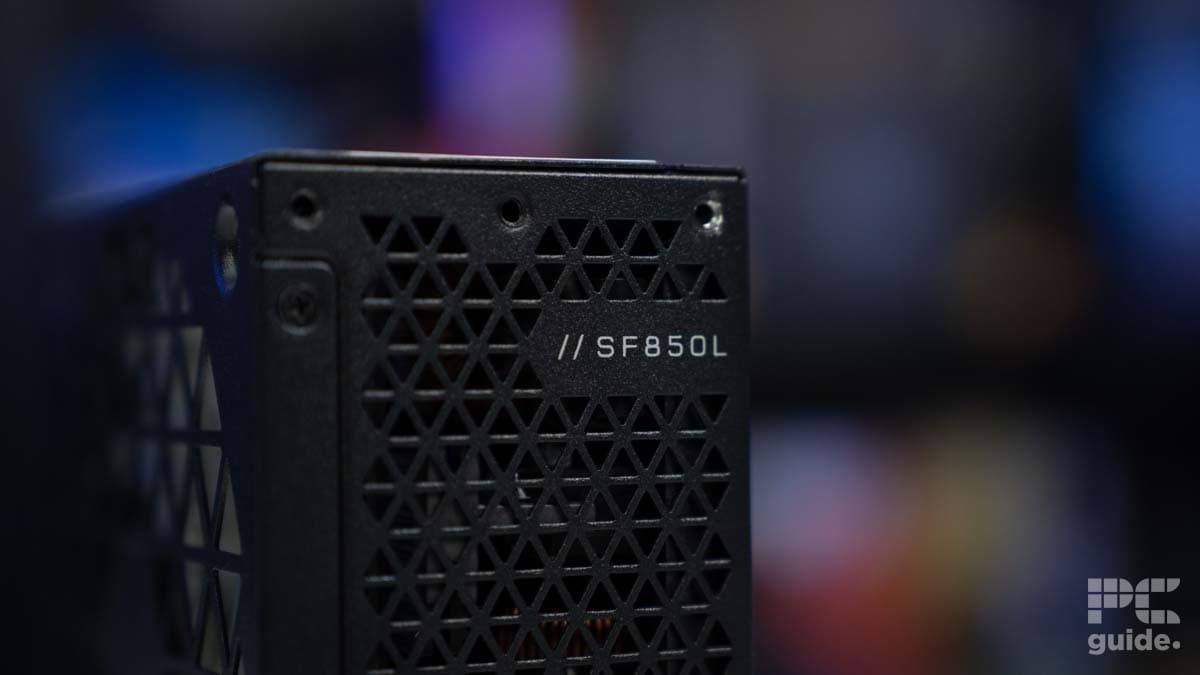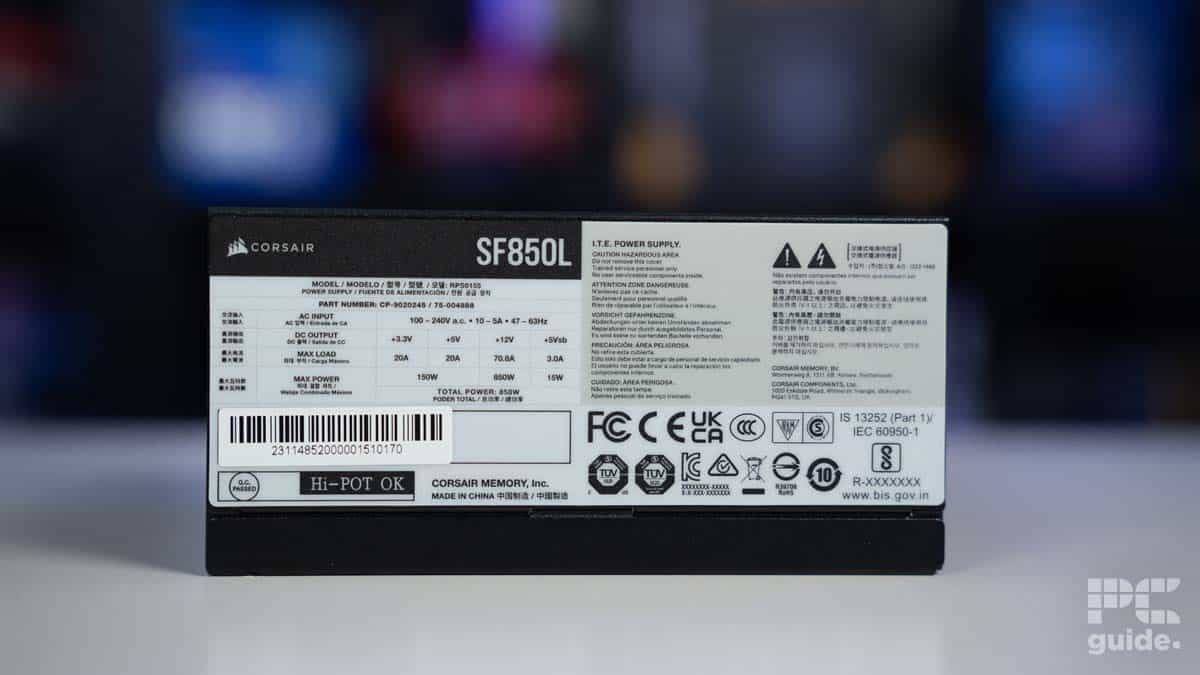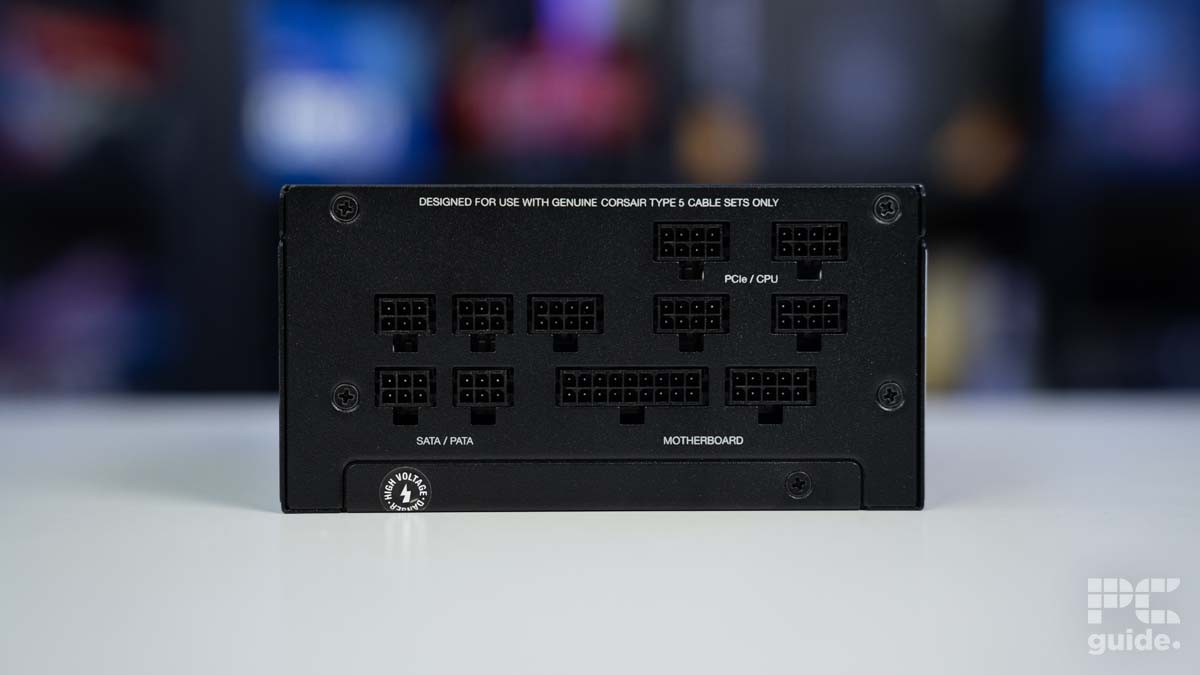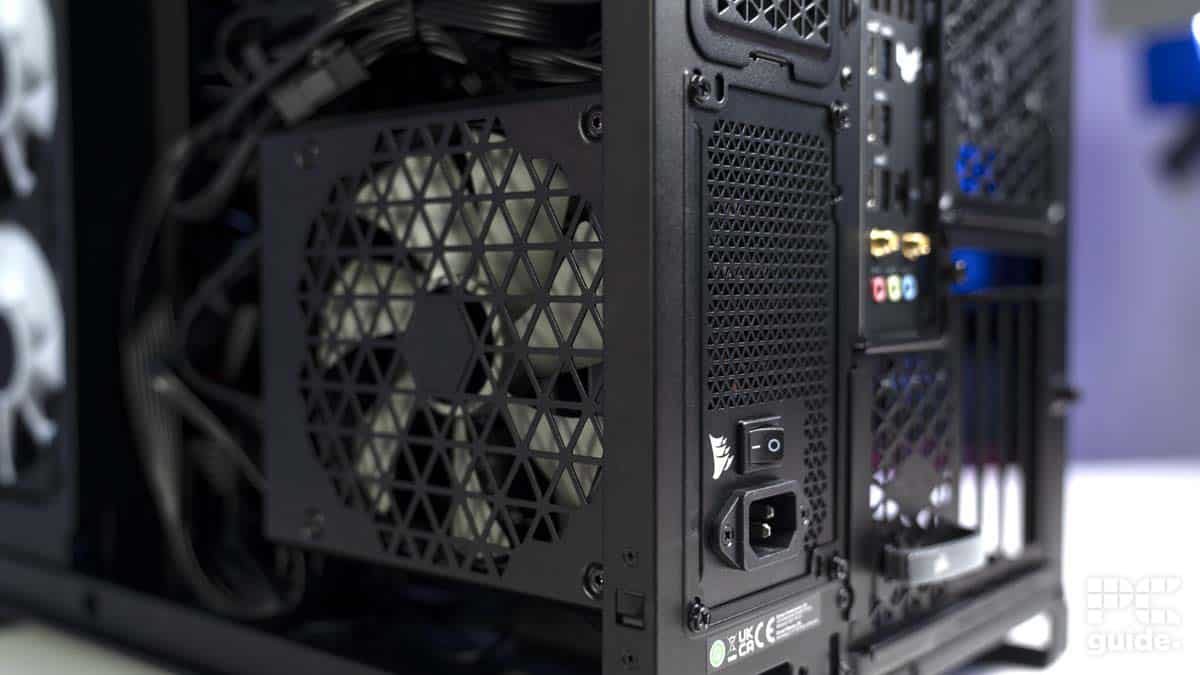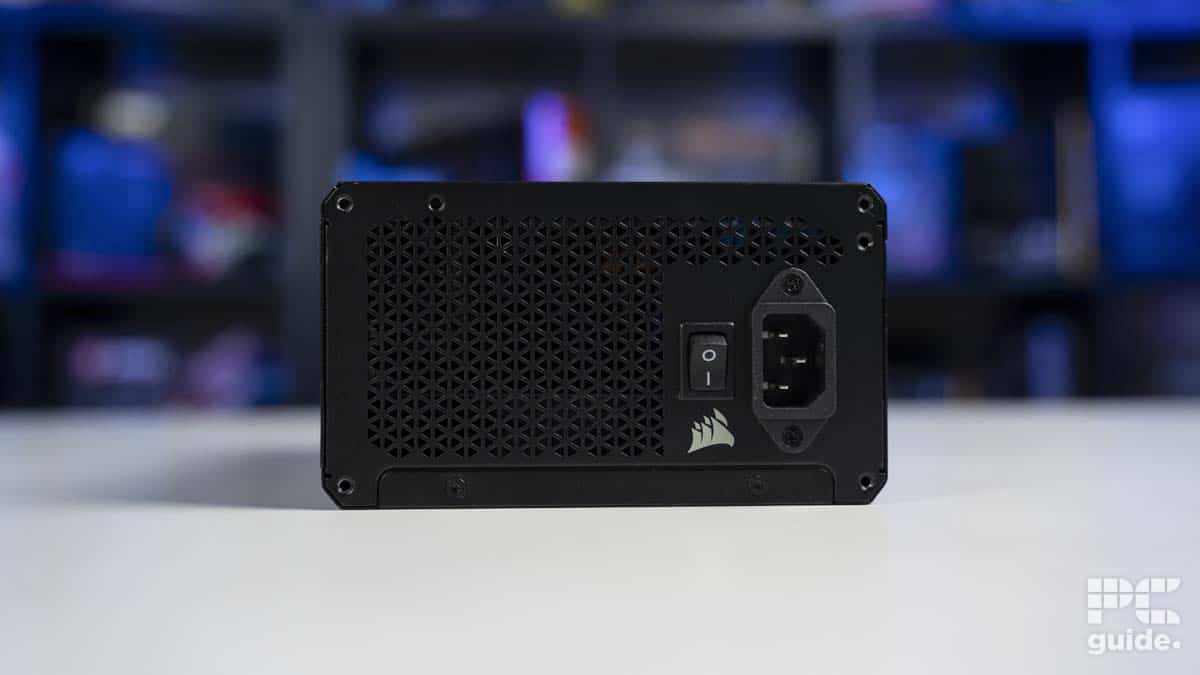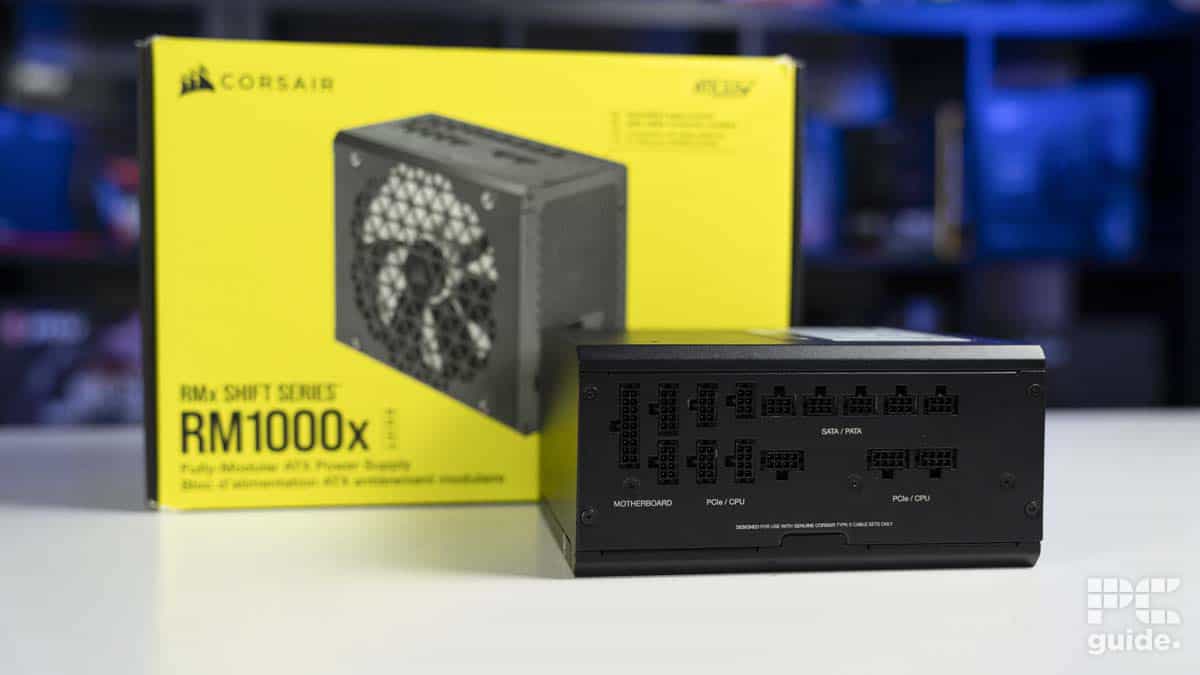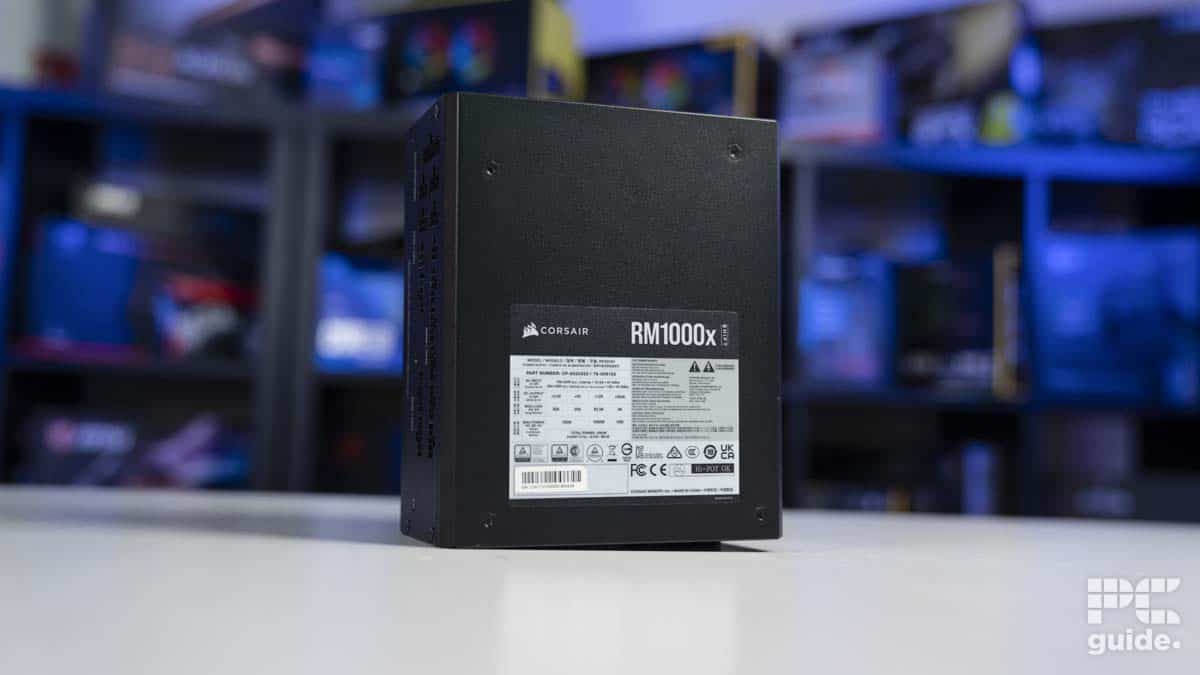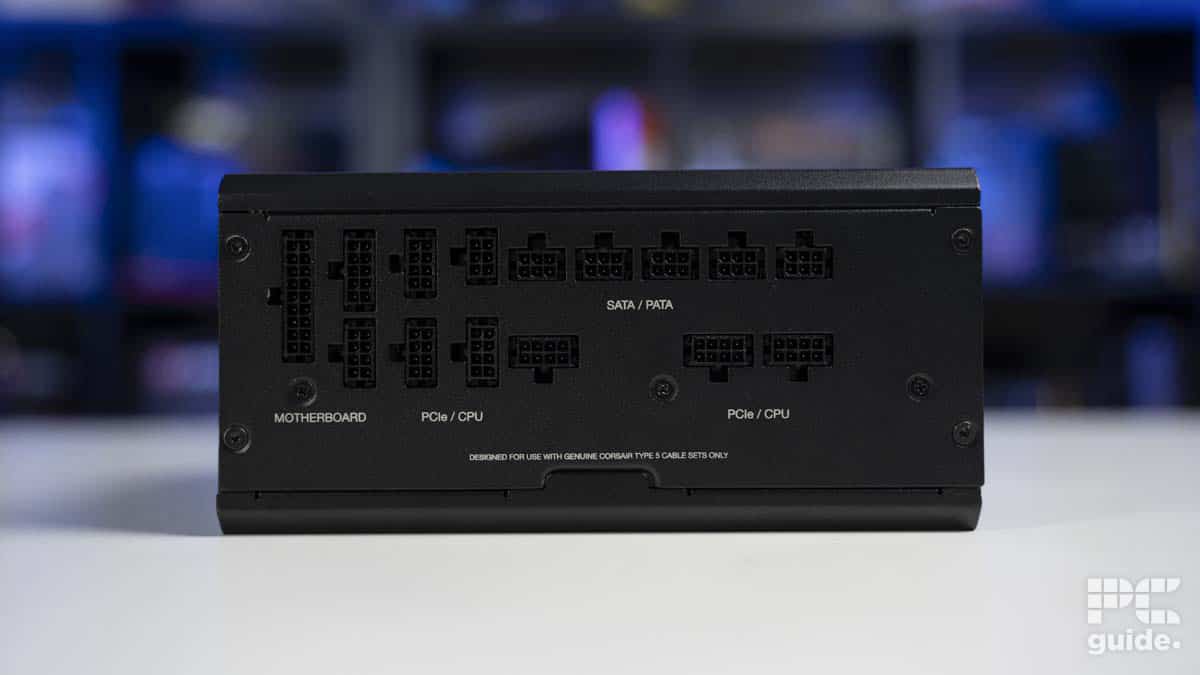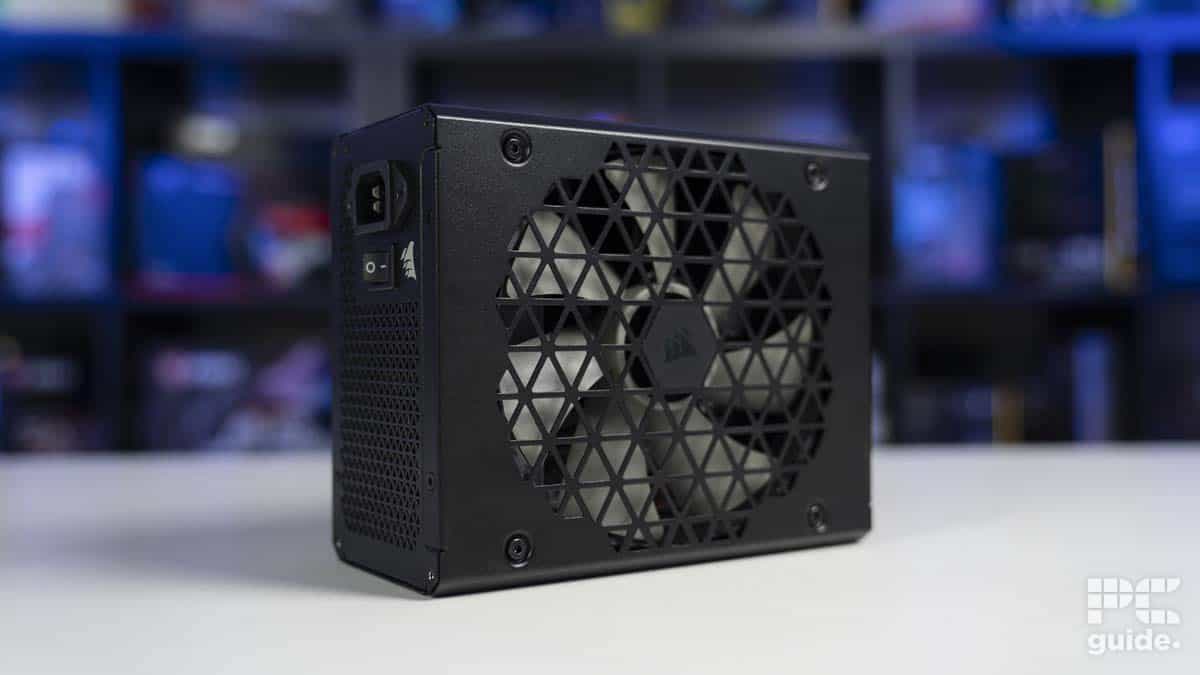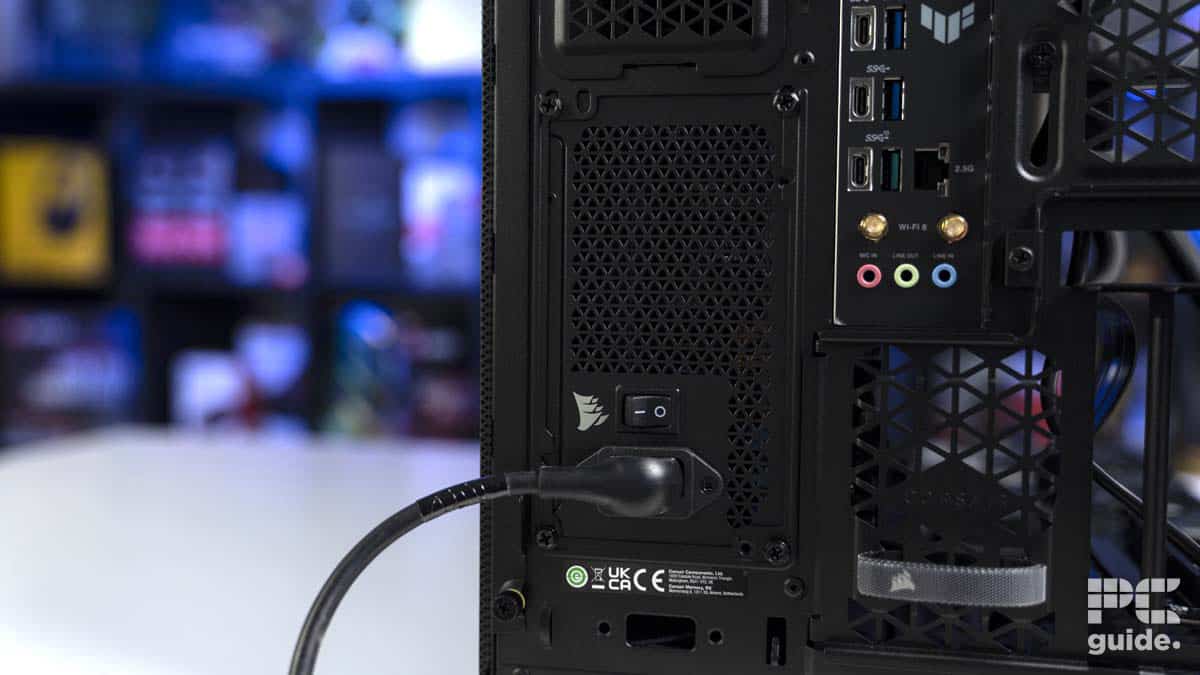Best PSUs for RTX 5080 in 2025 – our top picks
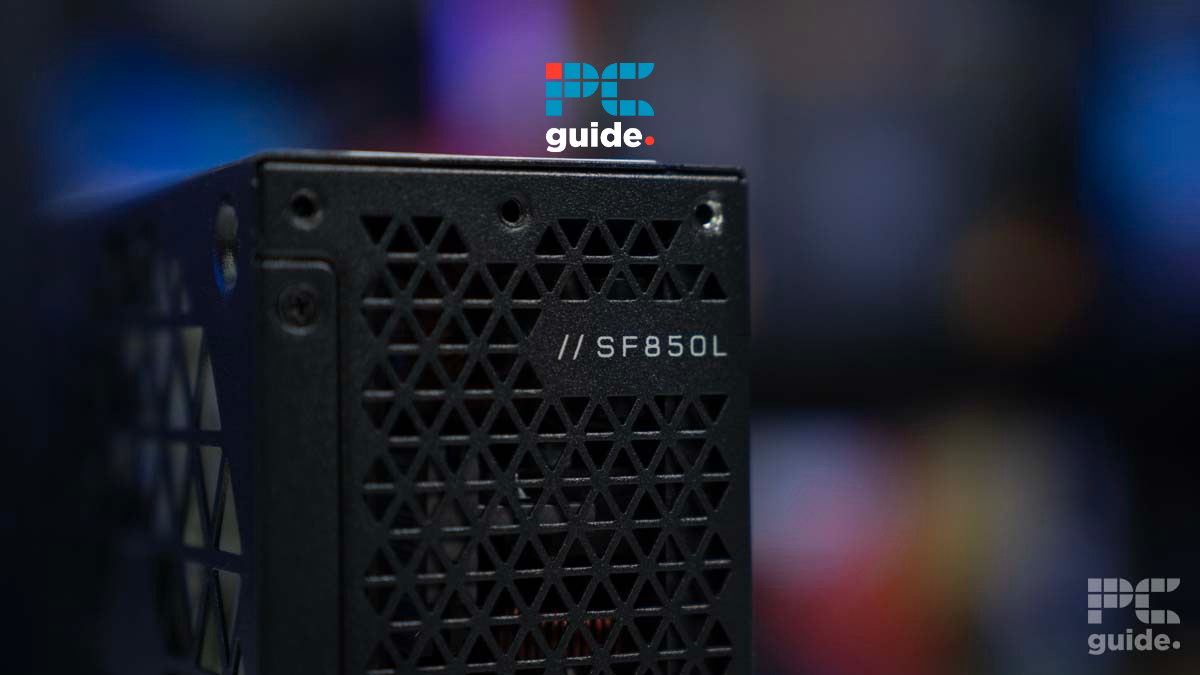
Table of Contents
The RTX 5080 has been released, and we’re big fans of the card, scoring it 4.5/5 in our review. If you’re keen on the card, you’ll already be planning out the best components to pair with it – the PSU being an important one.
While the RTX 5080 didn't receive a memory increment like the RTX 5090, it does have a newer and faster memory type. This hardware improvement has ramped its TDP to 360W, a 40W increase from the RTX 4080. Besides that, these new GPUs also come with a new power connection, which uses the 12V-2×6 cable, which is the same as the 12VHPWR but with a few upgrades that should ensure a secure and stable connection for the GPU.
Prime Day is finally here! Find all the biggest tech and PC deals below.
- Sapphire 11348-03-20G Pulse AMD Radeon™ RX 9070 XT Was $779 Now $739
- AMD Ryzen 7 7800X3D 8-Core, 16-Thread Desktop Processor Was $449 Now $341
- ASUS RTX™ 5060 OC Edition Graphics Card Was $379 Now $339
- LG 77-Inch Class OLED evo AI 4K C5 Series Smart TV Was $3,696 Now $2,796
- Intel® Core™ i7-14700K New Gaming Desktop Was $320.99 Now $274
- Lexar 2TB NM1090 w/HeatSink SSD PCIe Gen5x4 NVMe M.2 Was $281.97 Now $214.98
- Apple Watch Series 10 GPS + Cellular 42mm case Smartwatch Was $499.99 Now $379.99
- ASUS ROG Strix G16 (2025) 16" FHD, RTX 5060 gaming laptop Was $1,499.99 Now $1,274.99
- Apple iPad mini (A17 Pro): Apple Intelligence Was $499.99 Now $379.99
*Prices and savings subject to change. Click through to get the current prices.
So, a PSU that can handle the RTX 4080 should also be able to handle the RTX 5080, meaning there isn't necessarily a need for an instant upgrade. However, Nvidia recommends an 850W PSU for any RTX 5080 build, which is 100W more than the RTX 4080. So, if you're building a new setup, it is better to go for a higher-capacity ATX 3.1 and PCIe 5.1 PSU that comes with a 12V-2×6 cable to deliver 600W using a single cable and should also ensure more overhead for future upgrades.
So you can get ahead of the game and start preparing for your RTX 5080 build, we’ve selected a few PSUs that we've tested in-house that we think, based on our expertise, experience, and understanding of the RTX 5080 specs, will pair well with the card.
Products at a glance
-
Best PSU for RTX 5080
Corsair RM850x Shift White
- Wattage: 850W
- Form Factor: ATX (160mm L)
- Rating: 80+ Gold, Cybenetics Gold
- Design: Fully modular, side connectors
-
Best runner-up PSU for RTX 5080
Seasonic Focus GX-850
- Wattage: 850W
- Form Factor: ATX
- Rating: 80+ Gold, Cybenetics Gold
- Design: Fully modular
-
Best SFX PSU for RTX 5080
Corsair SF850L
- Wattage: 850W
- Form Factor: SFX-L
- Rating: 80 Plus Gold, Cybenetics Platinum
- Design: Fully modular
-
Best high-end PSU for RTX 5080
Corsair RM1000X Shift
- Wattage: 1000W
- Form Factor : ATX
- Rating: 80 Plus Gold, Cybenetics Gold
- Design: Fully modular, side connectors
How we picked
A PSU is one of the most crucial components of a PC, and it is in charge of delivering power to all the components and safeguarding them in case of a surge or disaster. So, while it might not be the most interesting component, you can say that it almost serves as a backbone.
To select power supply units, we consider their efficiency, fan size, capacitors, form factor, and modularity, test them in-house, and present you with a list of contenders. If you're interested in learning how we test and review products, check out our testing lab, which explains the process of testing different components in detail.
Our top picks

- Wattage: 850W
- Form Factor: ATX (160mm L)
- Rating: 80+ Gold, Cybenetics Gold
- Design: Fully modular, side connectors
- The latest model features ATX 3.1 standard with updated and safer native PCIe 5.1 cables
- Long 10 year warranty and using an FDB fan should last longer
- Top build quality and quality components provide strong and quiet performance
- Type 5 is less common so requires custom sleeve ordering for custom cables
- Power connector ports switch orientation for bigger connectors
- A more premium price for white and Shift model
The first 850W PSU that we recommend for the RTX 5080 is the Corsair RM850x Shift White. This PSU has a 4.5/5 rating from us in our RM850x Shift White review due to its excellent efficiency, low noise levels, and build quality.
The Corsair Shift series PSUs have connectors on the side instead of the back, opposite the fan. This makes it easier to make connections, as you can clearly see the ports. Its fully modular nature means that you can reduce the clutter by only using select cables needed for your build.
Besides that, it is an ATX PSU with 160mm length and coupled with the side connections; just ensure that your PC case can accommodate this design as you don't want to find out at the last minute that the side panel isn't closing due to the protruding cables.
This PSU has an 80+ and Cybenetic Gold rating. According to Corsair, an 80+ Gold efficiency rating means it'll be 87% efficient at 100% load and 90% efficient at 50% load. They also explain that the Cybenetic Gold rating means that this PSU should have an average efficiency ranging from 87% to 89%.
The Corsair RM850x Shift White brings plenty of innovation and uniqueness to the PSU market and updates the popular model. It brings native ATX 3 support for Nvidia graphics cards but updates them for safer 12V-2×6, which puts you a bit more at peace of mind.
PC Guide
There is only a 1% difference, but it shouldn't make much of a difference. The RTX 5080 has a 360W TDP, which, even if you pair it with the Core Ultra 9 285K, which has a maximum turbo power of 250W, would only total 610W. You'll still have a 240W overhead for other components and to overclock the GPU and CPU.
610W out of 850W is 71.76%, so it should be pretty efficient at that load. To test its performance, we paired it with the Ryzen 7 7950X and the RTX 3090, which have 170W and 350W TDP, respectively, totaling 520W.
We ran Furmark 2 for the CPU and GPU. This test pushes the components to their utmost limit, meaning they consume more power. At idle, the power draw was 126W; however, after booting the system, it went up to 705W, with the two components pulling around 570W, 50W more than what we had calculated.
Despite that, the PSU had no issues keeping up with the power requirements and delivering a stable supply. Also, the 140mm Fluid Dynamic Bearing fan did well keeping it cool and didn't make much noise. If we look at the results of Cybenetics testing of this PSU, at 115V, it had an 88.7% efficiency with a 22.84 dB(A) noise level, and at 230V, it went up to 90.3% efficiency with a noise level of 23.03 dB(A).
What this means is that it performed as expected and even went slightly up in performance as the Gold standard for Cybenetic is 89% maximum efficiency, but here it managed 90.3%. So, not only should this PSU be able to keep up with the RTX 5080 being paired with the most high-end processors, but it should also keep your electricity bills low in the long run.
What users say
According to Amazon reviews, this power supply unit is easy to install, has an excellent noise level, and is worth the money. One reviewer said: “Solid, reliable and quiet so far. Installation was a breeze, made easier with the side-on ports. Plenty of room in my Fractal Design Meshify C case. Loads of cables included, most of which I didn’t need.”

- Wattage: 850W
- Form Factor: ATX
- Rating: 80+ Gold, Cybenetics Gold
- Design: Fully modular
- Great price for the features available in the PSU
- Strong efficiency rating in both 80+ and Cybenetics
- Fully modular and supports hybrid mode for silent running
- Original power connectors are rather bulky
- Short distance between the peripheral connectors on the same cable
If you want to explore more options before settling on one and want a PSU with a more traditional design, we recommend checking out the Seasonic Focus GX-850. This is another solid 850W PSU that meets the requirements for the RTX 5080. It also costs less than the RM850x Shift White while having the same Gold efficiency rating from 80+ and Cybenetics.
In our Seasonic Focus GX-850 review, it showcased excellent efficiency. At 115V, it had an efficiency of 88.845%, while at 230V, it jumped to 90.962%. The noise level for the two voltages was 30.73 and 30.82 dB(A), respectively. So, while its efficiency level matches that of the RM850x Shift White, it has a slightly higher noise output.
A strong power supply that has improved over the years. Keeping up with the latest hardware while keeping the standard high.
PC Guide
However, to put it into perspective, a whisper is believed to be around 30 dB(A), so if you've got some ambient noise, you probably won't even hear the noise from this PSU fan. A neat aspect of this PSU is that it has five CPU and PCIe sockets, meaning you can overclock the RTX 5080 and the CPU you pair it with without worrying about running into power issues.
A button on the back of this PSU is for the Hybrid Fan control. When pressed, it'll turn on the fan regardless of the load, but when it is unpressed, it'll only kick in when it detects high load levels.
This should keep the fan from spinning needlessly, preserve its life, and keep your PC build quiet. Not only does it have excellent performance, but it also comes with handy features like these, which should give you more control of your RTX 5080 build.
Overall, this is a great PSU to use with the RTX 5080 as it keeps costs low and comes with all the regular safety features, such as Overvoltage Protection, Undervoltage Protection, Short Circuit Protection, and more. Also, it is efficient, so even if you pair a high-end CPU with the 5080, it should be able to handle it while delivering good efficiency.
What users say
According to Amazon reviews, this PSU has good build quality, the cables feel premium, and it has good performance. One reviewer said: “My power supply failed on me during a week of working at home so I needed a replacement pronto!! This was half the price of a like for like replacement and is very very quiet. My twin quad core xeon workstation is now purring along nicely and doesn’t even get hot like it did with the corsair psu. Brilliant!!”

- Wattage: 850W
- Form Factor: SFX-L
- Rating: 80 Plus Gold, Cybenetics Platinum
- Design: Fully modular
- It has 100% Japanese 105°C-rated capacitors
- It had 90%+ efficiency during our testing
- It weighs around 2.5 pounds or 1.1kg
- The fan noise is higher than in other models
- Minor rails have high OCP values
For those who are interested in a smaller build due to lack of space or just prefer it, check out the Corsair SF850L. This is an SFX power supply unit that measures 125 x 63.5 x 130mm. Despite its smaller build, in our SF850L review, it had excellent efficiency and noise output.
For starters, this PSU is fully modular and has an 80+ Gold and a Cybentics Platinum rating. According to Corsair, it should have an efficiency range of 89% to 91%. So, not only is it highly efficient, but being fully modular means that you can pick and choose which connections to make, which is great if you have a smaller PC case and are tight on space.
It should work well with the RTX 5080 as it is also PCIe 5 compliant, meaning you can control the precise power delivered to the GPU. There should also be plenty of overhead because even if you pair it with the 9800X3D, which has 120W, the total would be 480W, combined with the 5080's TDP.
The Corsair SF850L doesn't drop much even as a small factor choice. Keeping costs similar to those of ATX supplies means you're not paying over the top for it. Along with that, you get many years out of it, with a 7-year warranty but also with an ATX 3.0 and PCIe 5 native connection, you can get many years out of it.
PC Guide
This would still leave you with 370W, which should be more than enough for other components like the RAM, motherboard, fans, etc., and allow you to overclock the GPU and CPU as well.
A concern for smaller electronics is that they might run hot, as the internal components have less space between them. The fan has to work overtime to keep it cool, which generates more noise. According to Cybernetic, this PSU has a Standard+ noise level rating, meaning its noise output ranges between 35dB(A) and 40dB(A).
Looking at the Cybenetic testing, we can see that it matches its efficiency and noise output rating. At 115V, it had an average efficiency of 90.577% with a 36.09 dB(A) noise level. The efficiency jumped up to 92.333% at 230V while the noise lowered slightly by 35.92 dB(A).
So, it might be slightly more noisy than the other selections, but nothing that would distract you from work or while streaming or gaming. So, if that isn't an issue, this PSU should be great for the RTX 5080, and the best part is that generally, smaller products cost more, but it costs less than the other two options, which is a win-win situation if you ask me.
What users say
According to Amazon reviews, this power supply unit gets the job done and has an excellent load-bearing capacity. One reviewer said: “I have this PSU for around 3-4 months now. I can say it is the beast. The quality and the cable selection is good. The best part is, even in the tiny ITX case with, Ryzen 7700X, 96 GB ddr5, 3 x NVME Drives, 5 Sata SSD’s and 1 Sata 2.5″ 7K2 disk + Nvidia RTX 2080Ti, PSU fan is not even turning fir the all idle and most of the workloads.”

- Wattage: 1000W
- Form Factor : ATX
- Rating: 80 Plus Gold, Cybenetics Gold
- Design: Fully modular, side connectors
- Looking for a long-lasting power supply for many years
- Need 1000W for your build including the top-end hardware
- Want quiet and efficient performance
- If your recommended power is below 1KW
- Looking for a better efficiency
- After a more cost-effective model
While the power requirements for the RTX 5080 call for an 850W PSU, my motto for selecting a PSU is the more, the merrier. Even while building my own gaming PCs, I went with PSUs that offered a substantial overhead so that I could overclock and upgrade to more powerful components without worrying about power requirements in the future.
So, if you want to future-proof your build, we recommend checking out the Corsair RM1000x Shift, arguably one of the best 1000W PSUs available. The RTX 5080 has a 360W TDP, and if you pair it with the Ryzen 9 9950X, which has a 170W TDP, it would total 530W. After that, you can add in the power draw for other components, and let’s say the total power draw for your system is 600W; it would still leave you with a 400W overhead.
This means that you can overclock the GPU and CPU without worrying about the PSU’s ability to deliver the required power. A great aspect of this GPU is that it is ATX 3.0 and PCIe 5.0 complaint meaning it comes with a 12VHPWR cable, but to ensure that it doesn’t melt like it did with the RTX 40-series GPUs, you can use a 12-volt adapter cable, and then connect it to the GPU. Also, ensure the GPU variant you’re getting has a 12V-2×6 connector on it.
With a great load of power and strong efficiency, it provides a great choice for your next build, as long as you're willing to pay the premium for it.
PC Guide
Besides that, it has an 80+ and Cybenetic Gold rating, which, according to Corsair, means this PSU is 87% and 90% efficient at 100% and 50% load for 80+ and ranges between 87% and 89% efficiency for Cybenetic, respectively. What makes this PSU different is that it has all the connections on the side instead of in the back. This makes it easier to make the connections, but just ensure that your PC case can accommodate this style, as the cables sticking out from the side might not allow for the side panel to be properly closed.
Regarding its efficiency and noise output, it was 88.494% efficient at 115V with a 23.62 dB(A) noise level and 90.176% efficient at 230V with a 23.59dB(A). So, those who use a 230V connection will have better efficiency as the higher voltage can travel farther and also get a lower noise output. However, even at 115V the noise level shouldn’t bother you at all, as it is very quiet.
Overall, the RM1000x Shift has excellent efficiency and noise output and has a temperate range of 30-32°C. While it is more expensive than the 850W options, it offers more of an overhead, and the only GPU above the 5080 is the RTX 5090, which has a 1000W PSU requirement, meaning you can upgrade to that in the future without any issues.
What users say
According to Amazon reviews, this PSU has excellent performance and build quality. One user said: “This power supply is actually a bit surprising. I expected the shift to kind of get in the way, but it wasn’t actually an issue. And those type 5 cables are incredibly flexible, especially compared to my last type 4. They mostly look good enough I don’t consider cable sleeving necessary. This power supply is, I’m sure, going to be incredibly reliable, and a good price for continued warranty support that Corsair gives.”
How to pick the best PSU for the RTX 5080
Before you settle on any one power supply, there are a couple of factors that you need to consider. Doing so will filter the available options and present a couple of PSUs with a good performance-to-value ratio that perfectly fits you. We've listed some of the factors below.
Power requirements and budget
To select the best PSU for the RTX 5080, the first aspect you need to consider is its power requirement. Nvidia recommends an 850W PSU for this graphics card, so that is what you should be looking for.
While other options are available, such as 1000W PSUs or even higher than that, and come with features like RGB lighting, they just add to the cost and are purely cosmetic. Also, depending on your PC case, you might not even see all the RGB; generally, the PSU compartment is closed from all sides.
The argument can be made that a higher capacity will be better for future upgrades, but you must also consider your budget and not overspend. So, look for 850W PSUs based on your budget, and you should find a couple of options that offer good performance at a decent price.
Efficiency
The next factor to consider is the efficiency rating. There are two standards for PSUs: 80+ and Cybenetics. While their standards do overlap, they have different tiers.
- 80 Plus
- 80 Plus Bronze
- 80 Plus Silver
- 80 Plus Gold
- 80 Plus Platinum
- 80 Plus Titanium
- Cybernetics Bronze
- Cybernetics Silver
- Cybernetics Gold
- Cybernetics Platinum
- Cybernetics Titanium
- Cybernetics Diamond
A low-efficiency rating means it'll lose more power in transit and heat, which means it'll pull more to deliver to your components. Over time, this can affect your electricity bills; however, the higher up you go in this list, the better efficiency and sound rating you'll get, meaning less energy is lost, and even at full load, they don't make much noise, which is great if you're into super quiet PC builds.

